
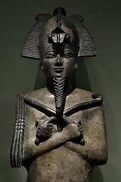






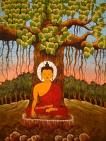






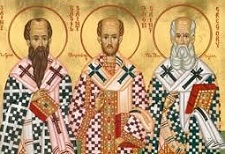






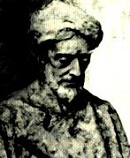































TLW's Godscope™ (God Historyscope) |
By T.L. Winslow (TLW), the Historyscoper™ |
© Copyright by T.L. Winslow. All Rights Reserved. |
Original Pub. Date: Mar. 27, 2020. Last Update: Feb. 2, 2022. |













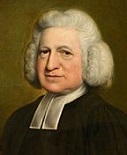













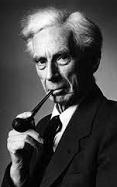




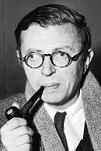
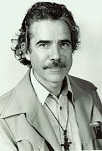


Westerners are not only known as history ignoramuses, but double dumbass history ignoramuses when it comes to the history of theology and the concept of God. Since I'm the one-and-only Historyscoper (tm), let me quickly bring you up to speed before you dive into my Master Historyscope.
The concept of God has evolved in step with humanity's highest thoughts, usually determining the entire culture. Some gods like Jehovah claim to be the Creator of the Universe and the Lord of History, while others are purely abstruse concepts. Some people claim to talk to God, while others consider God unreachable. It seems that people just can't live without gods, so studying the history of the concept of God is fundamental to the study of the history of humanity.
The main categories of theism (belief in God) are monotheism, polytheism, pantheism, deism, atheism, and agnosticism.

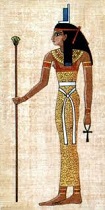


About 4,000 B.C.E. Ancient Egyptian religion begins, with a vast pantheon of gods who control the forces of Nature, requiring priests to propitiate them, and the pharaoh acting as intermediary between them and the people, causing enormous resources to be dedicated to rituals and temple construction; the Egyptian god Min is first worshipped as the god of reproduction, usually represented as a man holding his erect penis in one hand and a fail in the other - the original cracker? They also worshipped the mutter, er, mother goddess Mut (Maut) (Mout) AKA World Mother, Lady of Heaven, Mother of the Gods, Queen of the Goddesses, Eye of Ra, and She Who Gives Birth But Was Herself Not Born of Any; another early god worshipped by early Egyptians is the lunar deity Yah (Jah) (Iah) (Aah) ("Moon"), which is gradually assimilated into Osiris, god of the dead and Thoth, god of knowledge; origin of the Hebrew god Yahweh?; too bad for modern Christians, Jews, and Muslims, the ancient Egyptians happily lived and died and never worried about being saved by Christ, Moses, or Muhammad.

But we're talking about major religions that survived to modern times, so let's start with India, way back in the Indus Valley Bronze Age Civilization (-3300 to -1600), where India's original jackpot lotto game, Hinduism, oldest religion in the world was developed, based on Shruti (Sruti) (Sansk. "that which is heard"), with the theme that gods are a dime a dozen and they must all ultimately be one, and the goal of life is to transcend them all. About 1500 B.C.E. the Vedic Period began in India (ended -500), with major portions of the 1,028 Veda Hymns (Vedas) (Sans. "veda" = knowledge) being composed, incl. the Rig Veda (Royal Knowledge), Sama Veda (Chant Knowledge), Yajur Veda (Sacrificial Ritual Knowledge), Atharva Veda (Knowledge of Incarnations); the Universe was allegedly evolved by self-existent Brahma (Sans. "worship") (Prajapati) the Creator (part of the Hindu Trimurti or Triad) from a cosmic egg; he originally had five heads, until Siva (Sans. "auspicious") the Destroyer, god of destruction and reproduction, the 3rd member of the Hindu Trinity destroys four of them, and he becomes red and rides on a swan with his consort Saraswati ("eloquence personified"), who becomes the goddess of writing and the arts; meanwhile the 2nd member Vishnu (Sans. "all-pervader") the Preserver stabilizes everything, going on to have several human incarnations, incl. Krishna (Kistna) - where are the sex manuals? There are Six Orthodox Schools of Hinduism. The four Vedas, incl. the Samhitas ("joined") (prayers), Brahmanas (legends), Aranyakas (ritual sacrifice), and Upanishads (abstract spiritual philosophy), which describe the ultimate reality of Brahman and the form of human salvation (moksha); the Trimurti (Great Trinity) ("three forms") consists of Brahma the Creator, Vishnu the Preserver, and Shiva (Maheswara) the Destroyer, who are three manifestations of the Supreme Being called Ishvara, Bhagavan, Parameshwara, or Deva/Devi; some claim he has five forms, Ganesha, Shiva, Shakti, Vishnu, and Surya; all living creatures have an atman or soul; Hinduism split into four sects incl. Shaivism, whose devotees worship Shiva and wander about with ashen faces performing self-purification rituals, Vaishnavaism, whose devotees worship Vishnu, Shaktism, whose devotees worship Shakti or Devi the Divine Mother and perform animal sacrifice, and Smartha (Smarta), who worship all five forms and hold the Smriti ("that which is remembered") as the most authoritative texts, recognizing Brahman as the highest principle in the Universe, pervading all existence. About 2300 b.C.E. the Shiva Linga (phallic pillars) representing the Hindu deity Shiva in Shaivism are first created, often mounted inside a lipped disc-shaped platform called a yoni that symbolizes the goddess Shakti. As far back as the 8th cent. B.C.E. the Later Upanishads ("sitting down near") began to be composed (ends -400?); traditionally, 108 of them exist, varying from 1-50 printed pages in length, forming the lit. foundation of Hinduism, incl. the Brahman (universal spirit), the Atman (individual self), and the divine syllable Aum, and how the non-dual Brahman-Atman is the all inclusive ground of the Universe while all reality in the Universe is but an illusion, we won't mention sacred cows.

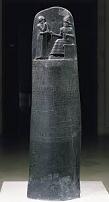
On June 16, 1750 B.C.E. Babylonian king (since -1792) Hammurabi (b. -1795) dies, leaving his famous 282 Laws (Code) of Hammurabi, which are reconstructed by Am. archeologist Francis R. Steele (1914-2003) in 1947; they incl. the death sentence for robbery, the Biblical "eye for an eye" law, lopping off the hand of a son who strikes his father, and laws regulating beermaking (20 varieties) and tavernkeeping; the 7-tablet Enuma Elish ("when on high") Babylonian creation myth dates to Hammurabi's reign, about a battle between the gods over the supremacy of Marduk, and the creation of mankind; Hammurabi's son Samsu-Iluna (d. -1712) becomes king of the great empire of Babylon, which immediately begins to disintegrate.

In 1353-36 B.C.E. Pharaoh Akhenaten (Akhenaton) (Amenhotep IV) (Amenophis IV) (d. -1336) reigns in the 18th Dynasty of Egypt, abandoning polytheism in favor of worship of the solar god Aten, making him "the world's earliest recorded monotheist" (Sigmund Freud); too bad, his people don't buy it, returning to polytheism and attempting to wipe his name from history.
As far back as the 9th cent. B.C.E. the Later Upanishads ("sitting down near") began to be composed (ends -400?); traditionally, 108 of them exist, varying from 1-50 printed pages in length, forming the lit. foundation of Hinduism, incl. the Brahman (universal spirit), the Atman (individual self), and the divine syllable Aum, and how the non-dual Brahman-Atman is the all inclusive ground of the Universe while all reality in the Universe is but an illusion.


Hinduism once had a great rival, I'm just a poor boy from a poor family, let me go Figaro. In the 9th cent. B.C.E. Rishabha (Adinatha) (First Protector) AKA Adishvara or Adeshvara (Primal Lord), the 23rd Tirthankara (ford maker) allegedly founded Jainism (Sansk. "to conquer"), the religion of not hurting a fly (non-violence and self-control), which peaked in India in the 8th cent. B.C.E., and after all the carnage is now down to 4M followers, albeit 90+% literate. Too bad, the Jain Flag features a Swastika, which became a big embarrassment in the 20th cent. when the Nazis adopted it.

According to big brain Karl Jaspers (1883-1969), the Axial (Axis) Age was from 800 B.C.E. to 200 B.C.E., when "the great world traditions that have continued to nourish humanity came into being: Confucianism and Daoism in China; Hinduism and Buddhism in India; monotheism in Israel; and philosophical rationalism in Greece", and where "What mattered was not what you believed but how you behaved", and the concept of kenosis (Greek for emptying), "spirituality of self-surrender" was the goal.
In the late 7th cent. or 6th cent. B.C.E. according to modern "scientific" Bible scholars, the Pentateuch (Five Books of Moses) (Torah) incl. Genesis, Exodus, Leviticus, Numbers, and Deuteronomy begin to be composed by four different sources, which are collated into the final version in the 5th cent. B.C.E.; the first two are "J" (Jahwist/Yahwist), living in the southern Kingdom of Judah, and "E" (Elohist), living in the northern Kingdom of Israel; in the 6th cent. B.C.E. "P" (Priestly) writes the first chapter of Genesis, and "D" (Deuteronomist) writes Deuteronomy; there are two versions of the creation story in Genesis; E's version of creation (Gen. 1:1-2:3): "In the beginning (Bereshith) God created the heaven and the earth. And the earth was without form, and void; and darkness was upon the face of the deep. And the spirit of God moved upon the face of the waters. And God said, 'Let there be light'; and there was light..."; J's version of creation (Gen. 2:5-7): "At the time when Yahweh God made earth and heaven, there was as yet no wild bush on the earth nor had any wild plant yet spring up, for Yahweh God has not sent rain on the earth nor was there any man to till the soil. However, a flood was rising from the earth and watering all the surface of the soil. Yahweh God fashioned man (adam) of dust from the soil (adamah). Then he breathed into his nostrils the breath of life and thus man became a living being."
From today's perspective, all major religions of er, today seemed to spring up in the 6th century B.C.E., that is, from 599 B.C. to 500 B.C. If it's negative and starts with a five, it's a keeper.
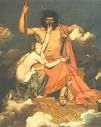




All them cerebral monotheistic religions and Greek philosophies give me a headache. If it weren't so uncerebral, I'd prefer to go Outback with the great mythological Greco-Roman Gods, incl. Zeus (Jupiter), Hera (Juno), Aphrodite (Venus), Ares (Mars), Hermes (Mercury), Hephaestus (Vulcan), Poseidon (Neptune), Athene (Minerva), Artemis (Diana), and cool Apollo, god of the Sun, music, archery, and prophecy. If only the gods were us, supermen and superwomen living up high somewhere with all our bad lusts and weaknesses, not afraid of nudity and able to have sex 24/7/365 sans fear of diseases, any sufficiently advanced technology is indistinguishable from magic (Arthur C. Clarke), call it the Star Trek Dream. Speaking of prophecy, the biggest difference between religion and philosophy, an attempt to establish divine authority by claiming a divine message has been communicated to a prophet, that's the game every religion plays, believe my prophet when he/she prophesies by uttering prophecies or bad things will happen on top of the good things you will get if you go for it. The difference is in how they want you to believe, voluntarily with or without evidence, or by force, call it Action Pak, a double feature every day and night, 24 hours of the Matrix, hey you got a call, I bring word from the Oracle, you must come at once.

Religion naturally started out with worship of everything that moves, then everything that doesn't move, especially elaborate idols that let a professional priesthood live high on the frog, and finally the celestial bodies, too far away to reach and smash like an idol yet able to reach out and touch them, it must have been confusing like when teenies first discover sex and have to get around their parents. Finally Egyptian pharoah Akhenaten (Akhenaton) (d. -1334) (Amenhotep IV) cut to the chase and abandoned polytheism for monotheism, or at least a good approximation, there's no way I'm kissing a frog and being a bug on the same day, see any Walt Disney film. Of course, if you believe the Jewish Torah then the Jews invented it first, indeed, didn't invent it, were taught it, by their god Jehovah, who wouldn't let them have any other gods or they were outa there, and also created the Universe and was holy, meaning untouchable by anything he created, who were all forever too unclean even to see him without instant death, people don't listen, don't take things from strangers. Too bad, he chose the Jews as his people, and only revealed his Bible to them, leaving everybody else in utter darkness without a drop of his crackalackin' mamajama Creator think to give them a clue about how to deal with the Devil, who had a world monopoly on pagan gods and goddesses, who were really his demons in disguise, how can something so little do something so big. Even the Egyptians, who had monotheism were so clueless that they took the Sun as the chariot of God and thought that their pharoah was the Sun of, er, son of the Sun, which is the meaning of the name Rameses (Ra-Moses), and figured that since the Moon kills the Sun each night, which is then reborn, and the winter kills the summer each year, which is then reborn, worthy, especially godlike people should also be reborn or resurrected, but since they didn't know squat about science, they thought that resurrection required the dried husk to be preserved in a giant pyramid complete with food, clothes, weapons, tools and slaves, defacing Egypt while consuming humongous manpower that could have been used to advance science and technology, so that Egypt spun around in a hamster cage for millennia until Persia conquered it in 525 B.C.E. At least Egypt didn't have racism, that seems to have been invented later, partly fueled by a feeling that Egypt started its downward slide when it let blacks become pharaohs, but I'm digressing.

Did I mention Moses (d. -1592?) (d. -1571?) (d. -1271?) ? The Bible claims he was an Egyptian prince who moled into the nobility even though he was really a Hebrew and was planted as an infant using the old floating reed basket trick, then decided to come out and show that Jehovah could kick any Egyptian god's ass with his hands tied behind his back and create a New World Order complete with the Ten Commandments and a whole new religion that requires males to have their foreskins sacrified to Jehovah, sounds gay but it's not, it was in place of their entire bodies, if you believe their version that is, maybe the Egyptians taught the Jews monotheism and circumcision too, and they made it all up, but I'm digressing again. Although Moses liberated his Hebrew nation from the Egyptians, they ended up wandering around in the wilderness for 40 years after being bad and creating a Golden Calf, and Moses died having never set foot in the Promised Land of Israel, after which the 200-to-400-year Period of the Judges followed, sex should be the last thing on your mind.

Back to Jaspers. First is Persia. In 588 B.C.E. (traditional date) the Revelation of Zoroaster (Zarathustra) is given by Zoroaster (Zarathustra) (-660 to -583), a Median religious reformer who got the goods from Thirta, who got it from King Fiedoon, who got it from King Jamshid, who got it from Homa; later Zoroaster's son-in-law Jamaspa writes it down in the Zend Avesta, which incl. the Visperad (Visperad) ("Worship"), describing religious rituals, and Vendidad ("Given Against the Demons"), an ecclesiastical code, which mentions 16 perfect lands of Ahura Mazda incl. Airyanem Vaejah (Ariana Vaeja), ("expanse of the Aryans"), the original homeland of Iranians; meanwhile Zoroaster introduces monotheistic semi-dualistic (Light v. Dark) Zoroastrianism (Zarathustraism) (Mazdaism) (Magianism) to the Medes and Persians, banning animal sacrifice and the use of intoxicants, introducing the idea of individual salvation through the freewill choice of Ahura Mazda (Good) over Ahriman (Angro-Mainyu) (Evil), and introducing the Zoroastrian Eschatology, where Time will end and the Universe will be cosmically renovated; the priests come from the Median tribe of Magi. Trouble is, the religion didn't export well, although its ideas did. Today after all the other religions ran amok through his homeland, his followers are down to maybe enough to populate Boise, Idaho.

Coming in second (or third, depending on whether you believe their cover story) is China, with Lao-Tzu (Laozi) (-604 to -531), founder of Taoism (Daoism). He's another one that may have been backdated, this time from the 4th cent. B.C.E. to compete with Confucius.

India is next with a whole new major religion once you get too much sex with that Hinduism stuff and want to try self-denial. In 563 B.C.E. Indian sage Siddhartha (Sans. "he whose aim is accomplished") was born, starting life as Prince Fo of the Sakya tribe of the Gautama clan, then later getting enlightened while sitting under a special fig tree called the Bodhi (Bo) Tree near Patna, India, and becoming the Buddha (-563 to -483) (Sans. "awake", "enlightened"), seeing the folly of materialism and getting that big happy face because of the big fix of reincarnation, founding Buddhism, which teaches the Four Noble Truths: 1. Life means suffering. 2. The origin of suffering is attachment. 3. The cessation of suffering is attainable. 4. The Path to the cessation of suffering is the Eightfold Path; it also teaches the 31 Planes of Existence that beings are reborn into during their long wandering through samsara.
In the isolated islands of Japan, Shinto (Kami no Michi) (Jap. "Way of the Gods"), from the Chinese Shin Dao (Way of the Spirits), which believes in kami (spirits) is otherwise similar to Buddhism. Its origins are murky, and claims are made as far back as -660, but the first historical record is in the 8th cent. C.E. Today there are 4M followers in Japan. Mt. Fuji is sacred to the Shinto goddess Sengen-Sama.
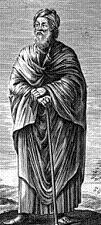
About 545 B.C.E. Xenophanes of Colophon (-570 to -470) leaves his home town of Colophon in Asia Minor and becomes a wandering poet-minstrel in Greece and Sicily, settling in Elea in S Italy in -536 for awhile and joining and/or co-founding (with Parmenides of Elea) the Eleatic School of Philosophy, which ridicules polytheism and pushes pantheism, dissing Homer for his anthropomorphic gods, with the famous soundbyte that if oxen could paint and sculpt they'd depict gods who look like oxen, espousing a belief in a supreme God that is non-mortal and eternal and doesn't intervene in human affairs; he reduces the world to the qualities of wet and dry (water and earth), dissing Anaximenes and his air theory by noting from his examination of fossils that water once covered the Earth, differentiating belief from knowledge.

Next comes the second big Chinese religion founder Confucius (-551 to -479), who founded Confucianism, based on reverence of ancestors, an ideal religion for a country that is forever overpopulated with people with revolving names.

In 478 B.C.E. Greek Ionian philosopher Xenophanes of Colophon (b. -570), leaving the soundbyte about the true origin of gods: Greek philosopher Xenophanes of Colophon (b. -570): claims to be writing to create "fame that will reach all of Greece and never die while the Greek kind of songs survives": "Ethiopians make their gods snub-nosed and black; the Thracians make theirs blue-eyed and red-haired... Mortals imagine that the gods are begotten, and that the gods wear clothes like their own and have language and form like the voice and form of mortals. But if oxen or lions had hands and could draw and do the work with their hands that men do, horses would have drawn the form of gods like horses and oxen gods like oxen and they would represent the bodies of the gods just like their own forms."


One good way to avoid paying old age pensions, or, the first Greek Christ without any Jehovah or Bible? On Feb. 15, 399 B.C.E. Greek philosopher Socrates (b. -469), who doesn't even allow youths under 30 to be exposed to dialectic is sentenced on the charge of corrupting the morals of Athenian youth and denying or neglecting the gods of the state, esp. by introducing the daemonion, or mysterious inner voice, which they take to be a new god; after refusing to address the charges and instead giving a speech vindicating his whole weltanschauung, which sails over the jury's head, he is condemned to death by a small majority, then angers them by offering to pay a small fine instead, causing the majority against him to increase; after his friends plan an escape and he refuses to break the laws of the state, he spends a last day with friends, issues the soundbyte: "Death may be the greatest of all blessings", then nobly drinks a cup of poison hemlock (he chooses to die rather than renounce the freedom to speak his mind in the search for wisdom?) (the real reason he is tried is that he is associated with Athenian traitor Alcibiades?); his death frees his student Plato (Gr. "broad") (real name Aristocles) (-427 to -347) (b. -428?) (d. -348?) (AKA Eflatun, meaning spring of water or knowledge) (born in Athens of wealthy aristocrats Ariston and Perictione; a relative of politician Critias) (who attends his trial but not his execution, and is messed up by it for life?) to travel broadly, er, widely, while churning out writings idolizing his crucified savior, making him immortal; he goes on to become "the Father of Western Philosophy", founding the Academy in Athens.

About 398 B.C.E. after witnessing Socrates' death and fleeing to his hometown and offering refuge to his other pupils, Greek Socratic philosopher Eucleides (Euclides) (Euclid) of Megara (-435 to -365) founds the Megarian School of Philosophy in Megara in N Isthmus of Corinth opposite Salamis Island, which flourishes for a cent. and produces Ichthyas, Eubulides of Miletus (known for his paradoxes, incl. The Liar Paradox), Clinomachus (first philosopher to compose treatises on the fundamental principles of Dialectics), and Thrasymachus of Corinth, and his pupil Stilpo (Stilpon) (-360 to -280), teacher of Zeno of Citium and Menedemus of Eretria; it teaches that the good is the knowledge of the one universal Being AKA God, Mind, Wisdom, Reason, and alone exists; "The Good is One, but we can call it by several names, sometimes as wisdom, sometimes as God, sometimes as Reason"; "The opposite of Good does not exist"; too bad, the doctrine is so patently absurd that the Megarians reverse Socrates' heuristic method into the eristic method of concentrating on finding something wrong in opponents' arguments, using Zeno of Elea's reductio ad absurdum technique to the max.
In 347 B.C.E. Greek "number appears to lead towards truth" philosopher Plato (b. -427) dies in Athens at age 76-80 after becoming the first to propose that the brain is the seat of mental processes, and to propose the Great Chain of Being; "One of the penalties for refusing to participate in politics is that you end up being governed by your inferiors"; "Wonder is the feeling of the philosopher, and philosophy begins in wonder"; "Whatever deceives seems to exercise a kind of magical enchantment"; leaves The Dialogues, incl. nine tetralogies (arrangement ascribed to Tiberius' court astrologer Thrasyllus by Diogenes Laertius): 1: Euthyphro, Apology (defense of his master Socrates) ("I shall never alter my ways, not even if I have to die many times"), Crito, Phaedo (which describes Socrates' last words and hemlock death, and claims that swans sing because they are inspired by Apollo, and is also claimed to have the beginning of the Gospel of John and the Trinity in it by St. Augustine); 2: Cratylus, Theaetetus, Sophist, Statesman; 3: Parmenides, Philebus, Symposium, Phaedrus; 4: Alcibiades 1 & 2, Hipparchus, Lovers; 5: Theages, Charmides (Temperance), Laches, Lysis; 6: Euthydemus, Protagoras, Gorgias, Meno; 7: Hippias Major, Hippias Minor, Ion ("Poetry is nearer to vital truth than history"), Menexenus; 8: Clitophon, The Republic (Res Publica), Timaeus ("God created the soul before the body and gave it precedence both in time and value, making it the dominating and controlling partner"), Critias; the Story of Atlantis is found in "Timaeus" and "Critias", allegedly passed down by his ancestor Solon; 9: Minos, Laws; Epinomis, Letters; spurious works incl. Axiochus, Definitions, Demodocus, Epigrams, Eryxias, Halcyon, On Justice, On Virtue, Sisyphus.
So divideth the B.C.E., the Don't-Say-B.C.-Before-Christ Butt Crack of Eternity (Before Common Era) from the C.E., the Don't-Say-A.D.-Anno-Domini-Year-of-the-Lord-Christ Scratch-and-Dent-Sale Common Era?



Sorry, historyscopers, but? In 30 C.E.-35 C.E. --it happens in the Roman province of Judea; nobody knows for sure, and it depends on whom you want to believe; a riddle wrapped in a mystery inside an enigma, the greatest coverup in history; the Great Track of Time enters not only a Dark Alley but a Black Hole, becoming an endless source of powerful fiction claiming to be fact, with the dividing line very hazy until centuries later - oh my gosh, I smell an Emmy? While visiting the Jewish Temple in Jerusalem, Jesus made a point of attacking the moneychangers (Mt. 21:12, Mk. 11:15, John 2:14-15), I wonder why?

About 50 C.E. Tarsus-born Jewish Christian apostle (St.) Paul (Gr. "little") (Saul) (Heb. "asked of God") (5-65) takes on the Greek Epicurean and Stoic philosophers and their Unknown God (in case they missed one with their other temples, to cover all bases) in the Areopagus, converting Dionysius the Areopagite et al. (Acts 17:15-34); in the 5th-6th cents. .E. Greek writings bearing the name of Dionysius the Areopagite are later produced by anon., laying the foundation for the mystical theology of the Church.
Early in 65 C.E. Jewish Christian apostle St. Paul (b. 5) is executed in Rome after founding Christianity, based on alleged visions of Jesus Christ, claiming that he was predicted in the Jewish Old Testament writings of Isaiah et al., but seemingly never having seen any Gospels?
In 68 C.E. after the death of St. Peter, St. Mark allegedly travels to Alexandria, founding the Catechetical School of Alexandria (Didascalium) and writing the Secret Gospel of Mark, containing "a more spiritual Gospel for the use of those who were being perfected", reserved for "those who are being initiated into the great mysteries", whose existence is revealed in 1958 by Morton Smith of Columbia U., along with a Fragment of the Gospel of Mark About the Raising of Lazarus (which is otherwise only found in the Gospel of John) that was deliberately suppressed by Bishop Clement of Alexandria to fight the senses-satiating Gnostic Carpocratians, founded by Carpocrates of Alexandria in the early 2nd cent.; it incl. the homoerotic text: "And after six days, Jesus told him what to do, and in the evening the youth came to him wearing a linen cloth over his naked body. And he remained with him that night, for Jesus taught him the mystery of the kingdom of God. And thence arising, he returned to the other side of the Jordan."
Open your case? About 156 C.E. Christian nutcase prophet Montanus (135-177?) of Phrygia declares himself to be the "Spirit of Truth" (the personification of the Holy Spirit in the Gospel of John), and gathers a bunch of followers, incl. Prisca (Priescilla) and Maximilla, a pair of "prophetesses", who have holy visions and ecstasies from Lesbos, er, God, and begin preaching the "Third Testament" and the "New Jerusalem", which will descend from heaven to Montanus' home town of Pepuza, WC Phrygia, causing true blue believers to flock there; Carthage-born Berber Tertullian (Quintus Septimius Florens Tertullianus) (155-240 becomes a convert, going on to become the first Christian to produce a large corpus of Latin Christian lit. and defend against heresies incl. Gnosticism, becoming known as "the father of Latin Christianity".



In 165-180 C.E. a big turning point in the pagan Roman Empire's fortunes was the Antonine Plague of either smallpox or measles, caused by soldiers who brought it back from a war with Parthia and Armenia, which killed 4M-7M incl. the last of the Five Good Emperors, Roman emperor (161-80) and Stoic philosopher Marcus Aurelius (121-80), and decimated towns from Persia to the Rhine, after which "The ancient world never recovered from the blow inflicted on it by the plague which visited it in the reign of M. Aurelius." - Barthold Georg Niebuhr (1776-1831). At first the pagan Romans blamed it all on the pesky Christians, causing a new persecution, but they held up to it and were soon forgotten amid all the anarchy and chaos and external and internal threats, and the Roman pop. probably never could avoid the feeling that the pagan gods were not there when they needed them. To make a long story short, Christianity became the official religion of Rome starting with Roman emperor (306-37) Constantine I the Great (272-337), who in 313 proclaimed the Edict of Toleration in Milan, then set up Constantine Town, AKA Constantinople (he called it New Rome, enticing Romans to relocate from the Old Rome by shipping and reassembling their villas) on the Bosporus Strait leading to the Black Sea, and consecrated it to Christ on May 11, 330 C.E., founding several new super duper Christian churches with gold looted from pagan churches, incl. Hagia Sophia ("Holy Wisdom"). The city's longtime crescent symbol, of Diana, goddess of the hunt (Hecate, goddess of the crossroads?) was kept, with the star symbol added, making it harder to scope the Muslims' use of it, da Moon is da Moon and everybody has all night to worship it. Too bad, he restationed Roman troops to defend Constantinople rather than Rome, later dooming it, but at least the Byzantines definitely had their er, eyes on them pesky illegal pagan Arab aliens down south, while first needing to deal with the immediate problem of them even more pesky Germans coming down from the north, who ended up ripping the Roman Empire apart and killing the Western half entirely in 476 C.E., leaving only the eastern half based in Constantinople. Too bad, Constantine I the Great greatly detested the Jews, whose religion he called a bestial sect ("sect nefaria"), and his so-called Edict of Toleration restricted Jewish rights incl. the right to proselytize, and prohibited them from living in Jerusalem. In 337 his son, rabid Arian Christian emperor (337-61) Constantius II (317-61) promulgated a law making the marriage of a Jewish man to a Christian woman punishable by death, and in 339 upped it to making conversion to Judaism itself a criminal offence subject to confiscation of all their property, I'm dreaming of a white Christmas.
About 170 C.E. the School of Antioch is founded as a rival to the Catechetical School of Alexandria, pushing a more literal exegesis that emphasizes the difference between the human and divine in the person of Jesus Christ; students incl. Nestorius.


They worship the Marlboro Man? In 177 C.E. Smyrna-born (St.) Irenaeus (130-202) is appointed bishop of Lugdunum (Lyons) to attempt the conversion of the Druidic Gauls, and goes to Rome to plead with Eleutherius to deal with the ascetic Montanist movement in Phrygia, which extols virginity, uses Hebrews 6:4-6 to claim that sins committed after baptism cannot be forgiven, and whose prophets go into ecstasy and speak with God's voice in the first person, claiming to supersede the Gospels, which later turns on Romanized Carthaginian Berber Tertullian (Quintus Septimius Florens Tertullianus) (155-240), who becomes a Montanist and writes De Ecstasi; followers of Eastern Christianity are driven across the English Channel during the persecutions of Lyons, carrying it with them and founding the Celtic Church in Britain, which takes until 1172 to conform with the Roman Catholic Church in rites and ceremonies (664 in England, 1153 in Scotland and Ireland).
In 197 C.E. despite Christ not returning as soon as he seems to have promised, Romanized pagan lawyer from Carthage Tertullian (155-240) converts to Christianity (probably aided by the spectacle of the Christians in the arena) and immediately begins vigorously promoting it, becoming the first to call it the "true religion" (vera religio); his writings coin the terms sacrament, resurrection, trinity, person (in the trinity), substance, and New Testament, and give Christianity a new lease of life by being the first written in Latin; too bad, he begins speaking out against classical culture and Roman power, drawing the 3rd cent. persecutions? - and if he was black, back atcha?
In 207 C.E. African Christian theologian Tertullian (155-240) breaks from the Roman Church and converts to the Montanist (New Prophecy) sect, known for its Pentecostal "holy roller" worship, becoming "the first Protestant".

In 215 C.E. after leaving Alexandria for Jerusalem in 202, Athens-born Christian convert St. Clement of Alexandria (Titus Flavius Clemens) (150-215) dies in Jerusalem after combining Christianity with Greek philosophy, calling Plato the Attic Moses, and promoting a serene way of life in order to reach the vast Quietness within, along with Divince Companion "sharing our house with us, sitting at table, sharing in the whole normal effort of our life", while touting Jesus as "the living God that suffered and is worshipped"; his pupil Origen takes his place in Athens.
In 240 C.E. African Christian theologian Tertullian (b. 155) dies in Carthage, leaving Adversus Judaeos (Against the Jews) (8 vols.): "What has Athens to do with Jerusalem?"; "[The Roman pagans] looked at the Christians as the cause of all catastrophes and all national disasters. If the Tiber floods in the City, if the Nile floods in the countryside, if the heavens stand still but the earth shakes, if a famine or plague is announced, a voice immediately goes up: let the Christians be thrown to the lions!"
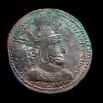

In Feb. 242 C.E. Ardashir I dies, and his son Shapur (Sapor) (Shabuhr) I tyhe Great (-270) succeeds him as king of Persia, (until May 270) demanding all Roman territories in Asia and invading Mesopotamia and Syria, beginning the Second Roman-Persian War (end 244); at his accession his gay bud, er, companion Mani ("the Illustrious") (216-77) (founder of Manichaeism) begins his public preaching in Seleucia-Ctesiphon, teaching a rigid dualism that claims to surpass the teachings of Christianity, Buddhism, and Zoroastrianism, claiming to be the Paraclete and Last Prophet, also an apostle of Jesus Christ, revering his mother Mary.

On Apr. 21, 248 C.E. Rome celebrates its big 1,000th birthday with secular games (Ludi Saeculares) presided over by pagan emperor Philip I the Arab, who throws one hell of a party, and has 1K gladiators fight to the death, along with hundreds of exotic animals - bringing back many good memories, maybe some sad ones too? In 248 C.E. Christian bishop (Church father) Origen (Gr. "born of Horus") Adamantius (Gr. "unconquerable") of Alexandria (182-253) writes Contra Celsum (Kata Kelsou) (Against Celsus) (8 vols.); written in Caesarea at the request of his patron Ambrose after receiving a copy of pagan philosopher Celsus' 178 work The True Word (Logos Alethes) against Christianity in 240, which is later lost on purpose, attacking Jesus Christ for "perverting the words" of the great Greek philosopher Plato, who "is not guilty of boasting and falsehood" like Christian theologians; for attracting the uneducated lower classes, with the blind faith required of Christians ("Do not ask questions, just believe; thy faith will save thee"), and refusal to recognize the state religion that requires regular sacrifices to the emperor's genius or to serve in the Roman military threatening the empire's stability, compounded by Christians' secrecy, "entering into secret associations with each other contrary to law"; his refutation praises the philosophy of Plato but claims that the Bible agrees with it and contains even greater wisdom, that Greek philosophers accept the doctrines of their school founders without question too, and that Christianity has "Spirit and power" (1 Cor. 2:4), as proved by Jesus selecting lowly peasants as his disciples to show the world that learned rhetoricians aren't needed to spread the faith; he counters Celsus' argument that the incarnation of Jesus is moose hockey by the assertion that the Logos could only reveal God to man by first becoming flesh; after showing that pagan myths can be just as ludicrous as the Bible stories he objects to, Origen claims that that all Christians are priests and should drop out of the system like pagan priests do; finally, that Christians' secrecy regarding mystical teachings is no different than the Pythagoreans'; considered a slam dunk, it becomes the std. Christian apology.

In 270 C.E. Lycopolis, Egypt-born Roman philosopher (Ammonius Saccas' pupil) Plotinus (204-270) dies in Campania after founding and coining the term Neo-Plotinism, er, Neo-Platonism (ends 529), which reduces the Universe to the One, the Intellect, and the Soul, leaving The Six Enneads.






The Tribus Unum (From Three, One) Year, which starts off with a shoe-banging Khrushchev type at the Catholic U.N. General Assembly, and turns into the biggest year in the history of Church doctrine? In 325 C.E. after trying in vain to get the warring parties to rise above their bitter Athanasius-Arius (Trinitarian-Unitarian) Controversy over the pre-existence of Christ and the Trinity (ultimately a theological dispute over homoousion vs. heterousion) (a purely Greek thang, which the Latins yawned off?) (an attempt to define levels in the godhead, a partial return to paganism?) (a mainly Egyptian thang, which softened Egypt up for Islam?) by citing the example of the wise Greek philosophers in a Letter to the Catholic Hotheads, Roman Emperor (306-37) Constantine I the Great (272-337), with the official title of pontifex maximus (maximum bridge-builder for the people to God and therefore equal to the apostles, giving him the right) convokes the first ecumenical (universal) (authority second only to Scripture) First Nicene Council (First Council of Nicaea) in Nicaea (modern-day Iznik) in Bithynia (NW Asia across the Bosporus Straits from his under-construction city of New Rome AKA Constantinople) on May 20-June 19, with the #1 goal of establishing the authority of bishops (as long as they are on the govt. dole and call the emperor boss?), presided over by his favorite (pro-Trinity) bishop Hosius (Osius) (Ossius) of Cordova (256-359) to decide the issue, with the Trinity side championed by archdeacon Athanasius (296-373) of Alexandria, and the anti-Trinity side by way older and higher-ranking presbyter Arius (250-336) of Alexandria, and Eusebius of Nicomedia (-341); James of Nisibis and a bishop from Persia attend; only about one-third (318) of the episcopoi (bishops) in the Roman Empire show up, with the attendants and servants beefing up the assembly to 1.5K-2K, which is conducted in Greek and presided over by the emperor, complete with his Roman bodyguard (although he is not a baptized Christian yet); the Church only sends seven official delegates, incl. two presbyters representing the bishop of Rome (pope); the debate goes on for 2 mo., with Arius uttering the immortal soundbyte: "The Son of God was a creature, made from nothing; there was a time when he had no existence; he was capable of his own free will of right and wrong; were he in the truest sense a son, he must have come after the Father, therefore the time obviously was when he was not, and hence he was a finite being", causing many to stick their fingers in their ears and run out, while St. Nicholas of Myra (270-346) hits him in the kisser; Eustathius the Great of Antioch (270-360) gives a great anti-Arian speech; finally Osius gets big-fish-in-a-small-pond layman (still really pagan and faking it?) Constantine in a back room and talks him into backing the T-side, and Der Fuhrer publicly announces that the bishops are free to vote any way their conscience dictates, only face deposition and exile to the butthole of the empire if they vote Arian; no surprise, Arius and his "Ariomanites" (Arians) are condemned by a 316-2 vote, which incl. 15 flip-flopping Arians, and 100+ Semi-Arians (who believe in a "similar" substance, homoiousion, and slide by for the time being under the don't-ask-don't tell policy?); there is actually no official vote, only a document called the Nicene Creed, the first official test of Christian orthodoxy, which makes the Trinity (Consubstantialism) (Homoousion) an official article of faith for good Roman Catholics, and which all bishops must sign or else pack their toothbrush and lose their official govt. position and income and face exile; as there is no Holy Inquisition, Arians aren't burned at the stake but allowed to run loose making converts, incl. Constantine's son and future emperor Constantius II, further fragmenting into 18 different flavors; for not signing the Nicene Creed, Arius and Eusebius of Nicomedia are exiled to a remote province of Illyricum (Illyria), and labeled as Porphyrians, their writings burned, and a death penalty proclaimed for possessing them; meanwhile Constantine's favorite sister secretly supports the Arians and works on his mind, eventually turning him into an Arian; after the council ends, Constantine issues a Letter to the Churches, declaring that all churches are to observe Easter as well as the sabbath on his pet pagan Sunday; the Quartodecimans (14th Day Christians) (observing Easter on the Jewish Passover of Nisan 14, citing Leviticus 23:5) are declared heretical, and their numbers begin to decline; the Council pub. the soundbyte: "For it is unbecoming beyond measure that on this holiest of festivals we should follow the customs of the Jews. Henceforth let us have nothing in common with this odious people... We ought not, therefore, to have anything in common with the Jews... We desire our dearest brethren to separate ourselves from the detestable company of the Jews. How, then, could we follow these Jews, who are almost certainly blinded?"; Canon 17 of the council forbids the clergy from engaging in usury, defined as charging interest higher than 1%/mo.; later the Athanasian Creed, AKA Quicunque vult ("Whoever wishes to be saved") is created; the Nicene Council causes the Paulicians to flee to Armenia in the Taurus Mts., where they practice beliefs resembling primitive 1st cent. Jewish Christianity, rejecting many Catholic dogmas, incl. worship of the cross, the Virgin Mary, the Mass, and confession (the first Protestants?); the pagan majority reacts by staging a pagan revival, with the aristocracy going back to the old prude morality of the Roman Repub., and becoming more monotheistic and mystical, meaning that there is going to be one hell of a civil war to see who takes it all?
Too bad, the Christians weren't satisfied with merely being legalized, but wanted to become the sole established state church, with its bishops on the govt. dole, which allowed the Roman establishment to systematically corrupt the Church from the top down, starting with the 318-bishop First Council of Nicaea in 325 C.E., which endorsed the age-old pagan doctrine of the Trinity championed by Alexandrian archdeacon Athanasius (296-373), despite clear lack of support in the Bible (dressed up in new clothes, with God, Christ, and the Holy Spirit as coequal persons in one Godhead, with the fact that the Egyptians had Isis-Osiris-Horus etc. only proving to them that the Devil knew about the real Trinity all along and tried to spread disinformation), declaring the Arians, followers of Alexandrian Egyptian Berber bishop Arius (250-336) (who thought Christ was a created being, hence could never be equal to God, which offended most Christians, who always regarded Christ as a god of some kind even if they couldn't understand the subtleties of how there could only be one God yet he could begat, forget it, catch the new season of How I Met Your Mother on CBS) to be heretics, after which the bishops increasingly called on the state to cancel the Edict of Toleration and use its might to crush Christian heresy (often those who were Jesus' real believers like in the early days) and paganism alike, especially so they could confiscate pagan temples and use the gold to build Christian churches, causing the pagans to fight back, and both them and the Christians to tear the empire apart with a long civil war that ended with the accession of emperor Theodosius ("God's gift") I the Great (347-95) in 379, who on Feb. 27, 380 issued an Epistula on the Nicene Creed, declaring Nicene Creed "Catholic Christianity" as the only legal imperial religion, ending state support of paganism; all heretical variations of Christianity, esp. Arianism are to be punished as crimes against the state, reversing Constantine I the Great's 313 Edict of Toleration, and ending the theological debate by fiat; religious freedom and toleration became kaput in Europe for the next thousand years. In 383 Theodosius I began a campaign to root out Arianism in the Eastern Roman Empire, passing laws forbidding Arian meetings; by 384 Arianism as a force was kaput, with only scattered pockets remaining, which didn't stop them from sending missionaries across the Rhine and Danube to convert the Germans; from now on every Roman emperor automatically takes the side of the pope against schismatics or heretics, which ultimately backfires as they welcome the Muslims as liberators. Of course, by this point the remaining pagans all found it easy to convert to Catholicism, it's name doesn't mean universal for nothing, because Catholicism reached out to them by incorporating pagan holidays and gods under laundered names, not to mention pagan doctrines. This only exposed the stiff-necked Jews as incorrigible holdouts, causing the Romans to tighten the screws. Hence, Christianity didn't invent the idea of convert-or-die, it invented the need for church-state separation, which took until Dec. 15, 1791, when the U.S. Bill of Rights was ratified after a huge complex struggle to free Westerners from the grip of the Church while still allowing anybody to be a member of that or any other Christian denomination, even to be an unrepentant gag, Jew. During God's Gift I's reign, concern for the increasing number of Greek-speaking Christian churches caused Latin to be adopted as the official language for the Roman Catholic Mass, whose name comes from the words "Ite, missa est" with which the priest dismisses the congregation. To throw a er, bone to the new Christians who were still pagan underneath, the doctrine of the perpetual virginity of Mary became such a rage that Tertullian's old writings of 208 that dissed it got mashed, and pesky references in the Gospels to the "brethren" of Jesus (1 Cor. 9:5, Gal. 1:19, Mark 6:3, Mt. 13:55) were no longer interpreted to refer to later sons of Mary by Joseph. Instead bishop St. Epiphanius (310-403) of Salamis in Cyprus (author of the Panarion or Medicine Chest Against All Heresies) proposed the more PC theory that they are sons of Joseph by a former marriage, and Jerome later proposed the even safer theory that they are sons of Alpheus, the husband of Mary's sister, and hence only Jesus' cousins, and in 431 at the instigation of Alexandrian patriarch St. Cyril ("lordly") (376-444), the First Council of Ephesus declared heretical the doctrines of Nestorianism, by Syrian-born Constantinople archbishop (428-431) Nestorius (386-451) for refusal to call sinless-born Virgin Isis, er, Mary the Mother of God, only the Mother of Christ, causing him to be deposed and the Assyrian Church of the East to split and go its own way. If I were a Jew I'd be puking chunks as the supposedly monotheist Christians first promoted Christ then his mother to gods, and had the gall to call me nuts. Speaking of Jews, after becoming the established religion, Christendom showed a mean streak of intolerance for the Jews, with St. Ambrose of Milan (337-97) advocating a convert-or-die policy, until St. Augustine of Hippo (354-430) came up with the "lovely brainwave" (Moses Mendelssohn's words) that they should be allowed to live and stay Jews, but be kept down as a wandering "witness people" that would serve as proof of what happens to those who reject Christ and his salvation, and hence must be kept from returning to Jerusalem and setting up their capital there as a matter of theology, clean makeup, easy breezy beautiful.

In May-July 9, 381 C.E. the First (Second Ecumenical) Council of Constantinople (2nd universal council since Nicaea in 325) of 150 Eastern Orthodox bishops, called by Gratian and Theodosius I condemns Constantinople patriarch (since 380) Maximus the Cynic, replacing him with his rival Gregory of Nazianzus (329-90), who is ousted in favor of dark horse candidate Nectarius (-397), then censures the council; it supports the 230 Synod of Iconium, and reaffirms and standardizes the various versions floating around of the "Faith of the 150 Fathers", AKA the Nicene Creed, rounding it out more fully to make them pesky *!?! criminal heretic Arians shut the f--- up, as well as the pesky Pneumatomachians, and clearly proclaims the Enanthropesis (taking of humanity) of the Word, as well as the doctrine of the Holy Ghost, 3rd person of the Trinity; it also declares Chiliasm (Millennialism) (Millennium Fever) (MF) to be a heresy; on July 30 Theodosius I ratifies its four canons (condemning Arius, setting fixed jurisdictional limits for bishops, ranking Rome as #1 and Constantinople as #2 in honor and dignity, and condemning Maximus and his followers), after which three more are framed next year; Bishop Ulfilas attends for the Arian side, and leaves wanting to get not mad but even, which he does by the conversion of the Goths?; just when the Church is on the brink of greatness, Constantinople bishop Nectarius is nominated as patriarch #1 of Constantinople, and declared 2nd in rank to the bishop of Rome (leaving the bishop of Alexandria out in the cold desert?), starting the East-West Schism in the Church as #2 tries harder?; Gregory of Nazianzus becomes one of the Cappadocian Fathers incl. Basil the Great (330-79), bishop of Caesarea, and his younger brother Gregory of Nyssa (Nyssen) (331-95), bishop of Nyssa, who cause the Trinitarian cause to prevail with their deep Greek arguments.
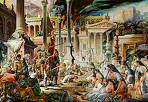


On Aug. 24-27, 410 C.E after deposed emperor Honorius regains power, and Visigoth king Alaric I and his 40K-man army march down Italy yet one more time, depose and imprison puppet Attalus, then after a short siege marked by on-again-off-again negotiations enter through the Salarian Gate, they sack Rome (say again?), leaving churches alone since they're still Christians, if heretic Arians, then after the emperor refuses to negotiate they head S towards Italy's granary in N Africa, and Alaric I dies on the way to Sicily after losing his fleet and being turned back, and is buried in the bed of the Busento River; his brother-in-law Ataulf (Athaulf) (Ataulphus) (-415) succeeds him, vowing to destroy the very name of Rome (home of the heretic Nicean Council crowd of bishops?), causing head bishop Pope Innocent I to leave the city until 412; the woes of the prostrate city cause (St.) Augustine (Austin) (Aurelius Augustinus) (354-430) in North Africa to produce his 22-vol. escapist work (about a holy Augustus ruling an invincible holy city of Rome?) The City of God, as the real City of God is no longer able to protect what's left of the Roman Catholic Western Roman Empire from the heavy G.I. Joe and hairy Barbie-doll barbed Arians (barbarians)?; he at first claims "Behold, from Adam all the years have passed, and behold the 6,000 years are completed", but as the world shows no sign of ending he teaches that the Church should ditch the Book of Revelation because the Kingdom of God has actually arrived with its new political power, and imagines the Church as a worldwide empire acting as the instrument of the Holy Spirit to gradually transform the world, but preaches that the heavenly New Jerusalem should be the goal rather than the earthly one; he pushes the doctrine of "Totus Ubique" (the whole of God everywhere), invents the notion of the inner self, explores the inner relationship between the soul and God along with the idea of divine grace, and all with the cool language of a Roman-trained rhetorician, dissing the holier-than-thou Donatists by claiming that saints and sinners should all be part of the Catholic Church, and will be separated at the End of Time, with the mystical secret brotherhood of saints forming the City of God, and the sinners forming the Twin City of Hell; "That which man builds man destroys, but the city of God is built by God and cannot be destroyed by man", its role being "to inspire men and women to organize their communities in the image and likeness of the heavenly city"; the operational message is that Christians should get out and convert violent barbarians, with education relegated to survey courses on classical lit. (science and technology - fuggedaboutit), giving the Roman Catholic Church its Mission: Impossible for the next six cents.; too bad, his work is later used to justify persecution of heretics and Jews because membership in the Church is mandatory; in short, Da Dark Ages; Pope Innocent I laps it up and becomes a groupie? - duh, Jesus said be no part of this world (John 17:14-16)? On Aug. 28, 430 C.E. after watching the Roman Empire unravel under the weight of barbarians, St. Augustine of Hippo is killed in the Vandal siege of Hippo (starvation?), leaving 200+ books, 300+ letters, and 400+ sermons, incl. The Confessions of St. Augustine (13 vols.) (397-400), the first autobio., showing what about the Catholic movement?; the first nine books narrate his first 31 years, ending with his baptism; the last four deal with his interpretation of Genesis and his ruminations on time and memory, attempting to reconcile Christian theology with Greek philosophy; he formulates a psychology that almost recognizes the subconscious, along with an "inner sense"; "Oh God, make me chaste - but not yet." He also leaves The Enchiridion (if it had been The Enchilada, Rome might have had its first Taco Bell?): "The good Christian should beware of mathematicians. The danger already exists that mathematicians have made a covenant with the Devil to darken the spirit and confine man in the bonds of Hell"; "Hope has two children. The first is anger at the way things are. The second is courage to do something about it"; "The truth is like a lion. You don't have to defend it. Let it loose and it will defend itself."
On Apr. 17, 485 C.E. Greek Neoplatonist philosopher Proclus (412-85) dies in Athens, leaving The Elements of Theology, consisting of 211 propositions and proofs, starting with the existence of the One (Divine Unity) and ending with the descent of individual souls into the material world; also The Platonic Theology (On the Theology of Plato), using Plato's dialogues to illustrate the divine orders, the part of the Universe closest to the One, becoming one of the most elaborate and fully developed systems of Neoplatonism.
In the early 6th cent. C.E. anon. Syrian Neoplatonist Christian theologian Pseudo-Dionysius the Aeopagite flourishes, palming himself off as St. Paul's Athenian convert in Acts 17:34, causing his mystical writings that often copy Proclus to be given great authority in both East and West, incl. On the Celestial Hierarchy (De Coelesti Hierarchia), which divides the angels into three hierarchies of three orders based on proximity to God corresponding to the nine orders recognized by Pope Gregory I, incl. 1) seraphim, cherubim, thrones; 2) dominations, virtues, powers; 3) principalities, archangels, angels; also The Divine Names, which calls God "Nothing" because he is above all being, "neither a unity nor a trinity in the sense in which we know them", and even above all names, preferring to call God the theurgy and going on to claim that we must deny all attributes and names of God, saying that he is both "God" and "non-God", "good" and "non-good", with the soundbytes: "Of him there is understanding, reason, knowledge, touch, perception, imagination, name and many other things. But he is not understood, nothing can be said of him, he cannot be named. He is not one of the things that are"; "As we plunge into that darkness which is beyond intellect, we shall find ourselves not simply running short of words but actually speechless and unknowing."

In 524 C.E. Rome-born Platonic philosopher-senator (last Roman philosopher?) Anicius Manlius Severinus Boethius (Boëthius) (480-524) is executed in Pavia by King Theodoric the Great, leaving The Consolation of Philosophy, teaching readers to look beyond worldly inequalities to divine Providence, becoming the #1 philosophical work of the Christian Middle Ages ("a work written by a Platonist who is also a Christian, but is not a Christian work" - Henry Chadwick); "Ah why, my friends,/ Why did you boast so often of my happiness?/ How faltering even then the step / Of one now fallen" (opening); after Philosophy appears in the form of a woman: "Her look filled me with awe; her burning eyes penetrated more deeply than those of ordinary men; her complexion was fresh with an ever-lively bloom, yet she seemed so ancient that none would think her of our time"; "There remains also as an observer from on high foreknowing all things, God, and the always present eternity of his sight runs along with the future quality of our actions, dispensing rewards for the good and punishments for the wicked."


Had enough, then switch to Muhammadol, reverse the curse? In 610 C.E. after 500 years of Christians telling them that Jew-Zeus is coming and never does, enter the Big 8-Ball that causes the Religious Pool Table to become a money game, Arab caravan raider leader Muhammad (570-632), founder of Islam, the counter-revolution to Jewish everything, tracing the root problem back to Father Abraham, who came long before Moses and Isaac AKA Jacob (father of Joseph), and had another son, Ishmael, the father of the Arabs, who were blasphemed by the Jews in their perverted Bible, which is now being set straight by the recitation (Quran) straight from the heart of their Prophet, listen people, this is the deal, you have five minutes to get five hundred shekels worth of stuff in your carts. True, M-Mad didn't claim to be the son of God, or God, or to rise from the dead, indeed the location of his grave is a jealously-guarded secret because, unlike Jesus', it's not empty, and even his physical appearance is supposed to be a no-no, in case somebody stumbles on a skeleton of a man with three dongs and gets an idea. But Big M does claim to be the final religious founder, because he's gonna make it final, happily transmitting orders from the one and only god Alpha, AKA Allah to kill kill kill, kill everybody else on Earth who doesn't submit to make it the final religion, so there, infidels. The world has been one Hell ever since, on top of its other problems. Check back with me later in paradise to see if everybody went with his program or if the quarantine and immunization programs were effective.

On Feb. 23, 715 C.E. after expanding the caliphate into Spain, Transoxiana, Sind, and Byzantine lands, Umayyad caliph (since 705) Al-Walid I (b. 668) dies, and his younger brother Suleiman (Suleyman) (Arab. "peace") I bin Abd al-Malik (674-717) (son of Abd al-Malik) becomes Umayyad caliph (until 717); after getting confused as to whether the Hajj is supposed to be to Mecca's Qaabah or Jerusalem's Dome of the Rock, he goes to Mecca first, doesn't like it, then decides on Jerusalem, like his father?; seeing his chance, Byzantine emperor (since 713) Anastasius II sends an army led by Leo the Isaurian to invade Syria, ordering his fleet to anchor at Rhodes to destroy Muslim naval stores and block enemy approach; too bad, in May the Opsician troops mutiny, slay Adm. John, and proclaim low-born (really son of Tiberius III?) tax collector Theodosius (Theodosios) III (-754) (who tries to hide in the forest near Adramyttium until he is found and dragged out) as emperor; in Nov. they take Constantinople after a 6-mo. siege, causing Anastasius III to flee to Nicaea, submitting to the new emperor next year and becoming a monk in Thessalonica; Theodosius III becomes Byzantine emperor #120 (until Mar. 25, 717); on Aug. 11 iconophile (St.) Germanus I (634-740) becomes ecumenical patriarch of Constantinople (until 730), helping negotiate Anastasius III's surrender terms, then organizing a new council promoting Dyothelitism, the claim that Christ had two natures and two wills (2N2W).
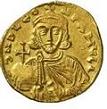
On Mar. 25, 717 C.E. emperor (since 715) Theodosius III is removed from the Byzantine throne by Commagene-born Leo III the Isaurian (Isaurican) (Syrian) (Konon) (685-741), who becomes Roman Byzantine emperor #121 (until June 18, 741), founding the iconoclastic Isaurian (Isurian) (Isaurican) (Syrian) Dynasty (ends 867), regenerating the empire; just in time too, because the Second Arab Muslim Siege of Constantinople begins in Aug. (until Aug. 15, 718).
In 726 C.E. after icons become widespread in Byzantine Christianity, Byzantine emperor Leo III the Isaurian and his son Constantine V issue an edict forbidding veneration of sacred images (icons) (based on Exodus 20:3-5), followed by another ordering their destruction, pissing-off the pop. and starting the Iconoclasm (Gr. "image breaking") War (ends 787); pressure from the Muslim pop. makes them do it?; meanwhile Leo III attempts to crack down on Italy and make it obey him rather than the pope as secular prince, levying heavy taxes on the great landowners, which really gets to Pope Gregory II, biggest landowner of all; meanwhile Liutprand of the Lombards attempts rapprochement with the papacy, with brief success.
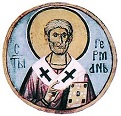
In 730 C.E. after iconophile patriarch of Constantinople (since 715) (St.) Germanus (634-740) writes a letter appealing to him, Pope Gregory II convokes a synod which condemns iconoclasm as heretical and excommunicates all iconoclasts incl. Byzantine emperor Leo III; too bad, the messengers carrying the papal letter are arrested in Sicily, and the letter never makes it to Constantinople; Leo III keeps the heat on, sending troops on search-and-destroy missions for sacred images hidden in lofts and wells and under beds, and removing the Roman province of Illyria (which later became Bulgaria) and S Italy (Sicily and Calabria) from papal jurisdiction, which the pope doesn't much object to, later proving to be a mistake when Bulgaria goes Greek Orthodox; Leo III deposes Germanus, and appoints fellow iconoclast Anastasios as ecumenical patriarch of Constantinople (until 754).
In 748 C.E. Arab Muslim theologian Wasil ibn Ata (700-48) dies after walking out on the lessons of Arab Sunni Muslim teacher (founder of Sufism) Hasan al-Basri (Abu said) (Abi'l-Hasan Yasar al-Basri) (642-728) and founding the Mu'tazilite (Arab. "to separate oneself from") school of Muslim philosophy, which rejects the doctrine that the Koran is uncreated and co-eternal with God, because else God "must have preceded his own speech", and claims that good and evil can be established through unaided reason, pissing-off the Sunni majority who follow the Hadith.

About 770 C.E. Buddhist monk-scholar ("the Second Buddha") Padmasambhava ("born of the lotus") AKA Guru Rinpoche journeys from N India to Tibet, founding Tibetan Buddhism (Lamaism) (Tibetan "blama" = superior), based on Mahayana (theistic) Buddhism, corrupted Sivaism, and eventually incorporating native ritualistic Shamanism, which holds religious services three times a day, called by the tolling of a small bell, with everybody seated in rows accoding to rank, and making use of rosaries, prayer wheels and flags, holy relics, charms, talismans, and mystical incantations, esp. "om mani padme hum" (oh lotus jewel, amen"); the top job in the hierarchy is Dalai (Grand) Lama ("Lamb of God"?), then Teshu (Bogodo) Lama, then the Hutukhtus, then the Hobilghans (bodhisattvas), then the lower clergy, consisting of abbot (teacher), mendicant, asst. priest, and novice; animal sacrifices are forbidden; New Year is celebrated in Feb., the Flower Feast is held at the beginning of the summer to commemorate the incarnation of the Buddha, and the Water Feast in Aug.-Sept. marks the start of autumn; babies are baptised on the 3rd or 10th day after birth,and confirmed when able to walk and speak; in case one still gets bored in the Crystal Temple in Shelkar, Tibet at 14K ft. above sea level, the Lamaic Canon contains over 1K works, consisting of 100 vols. of 1K pages each, and then if you still can't sleep there's the Lamaic Exegetical Commentary - if they only had the Internet they coulda kicked Bill Gates' butt long before he was born?

In 873 C.E. Baghdad-born Arab super brain Al-Kindi (Abu Yusuf Yaqub ibn Ishaq as-Sabbath al-Kindi) (801-873), member of the House of Wisdom and first of the Islamic peripatetic philosophers (who apply reason to the Koran) dies after overseeing the translation of "the philosophy of the ancients" (Greek scientific-philosophical texts) into Arabic and leaving hundreds of works on all the sciences, incl. introducing Indian numerals to the Islamic world, which become Arabic numbers when introduced to the Christian world; his metaphysics stresses the absolute oneness of God, calling God the "First Intellect", following Plato in claiming that every object in the material world corresponds to a universal form in the heavenly realm, becoming "the father of Arab philosophy", going on to become popular in Christian Europe.
In 936 C.E. Arab Sunni theologian Abu al-Hasan Ali ibn Ismail al-Ash'ari (al-Ashari) (874-936) dies in Basra, Iraq after founding the rationalist Sunni theological Kalam (Ash'ari) School, which breaks off from the Mu'tazila school and begins applying Greek philosophy and dialectic to Islam, declaring that Allah isn't necessarily rational, and freewill is an illusion, leading to modern Muslim terrorists incl. Osama bin Laden?
In 991 C.E. Arab rationalist scholar Ibn al-Rawandi (Abu al-Hasan Ahmad ibn Yahya ibn Ishaq al-Rawandi) (827-911) dies, leaving Kitab al-Zumurrud, repudiating revealed religion incl. Islam.
In 1021/2 Jewish Neo-Platonic philosopher Solomon ibn Gabirol (Solomon ben Judah) (AKA Avicebron) (1021/1022-1050/1070) is born in Malaga, Cordoba, Spain, going on to originate the doctrine that all things incl. intellect and soul are composed of matter and form, emphasizing the divine will.

In 1025 Persian Muslim brain man (polymath) Avicenna (Ibn Sina) (980-1037) writes Al-Qanun fi at-Tibb (The Canon of Medicine) (5 vols.), which synthesizes Greek and Arab medicine, basing medicine on experiment and reason, dominating backward Western medicine until the mid-17th cent. In June 1037 he dies, leaving 450 works incl. Kitab al-Shifa (Kitab ash-Shifa bi ta'rif huquq al Mustafa) (Book of Healing by the Explanation of the Rights of the Chosen One) (AKA Sufficientia) (18 vols.), an attempt to describe all scientific and philosophic knowledge; also Kitab al-Najat (Book of Salvation), an abridged vers. of the preceding, giving the "flying man argument" for the distinction between the body and soul, which must be strong enough to ensure its individuality, but weak enough to allow for its immortality; he also founds physiological psychology for the treatment of illnesses involving emotions, developing a system for associating changes in pulse rate with inner feelings, and developing the Tabula Rasa concept beyond Aristotle; also Proof (Demonstration) of the Truthful (Veracious), a formal argument for the existence of God, claiming that he can't not exist, making fans of Maimonides, Duns Scotus, and Thomas Aquinas.


In passing, I must mention one Muslim who is almost good enough to emigrate to the West even today, the freethinking wine-loving Persian brain man Omar Khayyam (1048-1122), known for his epic treatise on algebra, and his cool poem The Rubaiyat ("Quatrains"). The truth is that he was so cool because he was Persian first and Muslim last, i.e., areligious, imagine how great Persia could have become if it weren't for Islam. It's too bad the Iranians of today don't chuck Islam and that Shiite shiite and get with it like him, they'd become a magnificent culture again. "Some go for the pleasures here below/ Others yearn for the Prophet's Paradise to come/ Ah, take the cash and let the credit go,/ Nor heed the rumble of a distant drum." "A book of verses underneath the bough,/ A jug of wine, a loaf of bread, and thou/ Beside me singing in the wilderness/ Oh, wilderness were Paradise enow!" "The Moving Finger writes, and having writ,/ Moves on, nor all thy piety nor wit/ Shall lure it back to cancel half a line,/ Nor all thy tears wash out a word of it." "I sometimes think that never blows so red/ The rose as where some buried Caesar bled." "One thing is certain, and the rest is lies;/ The flower that once has blown forever dies." "Myself when young did eagerly frequent/ Doctor and Saint, and heard great argument/ About it and about; but evermore/ Came out by the same door as in I went." "The Koran! well, come put me to the test - / Lovely old book in hideous error drest - / Believe me, I can quote the Koran too,/ The unbeliever knows his Koran best."

In 1075-6 Italian Benedictine monk St. Anselm of Canterbury (Aosta) (Bec) (1033-1109) (archbishop of Canterbury in 1093-1109) begins crankng out theological works, starting with Monologion: A Monologue on the Reason for Faith (Monologium de Ratione Fidei) AKA "An Example of Meditation on the Reason for Faith" (Exemplum Meditandi de Ratione Fidei), based on St. Augustine's "De Trinitate", giving reasons for belief in God sans appeal to authority; he follows in 1077-8 with Proslogion (Proslogium) (Discourse) (Faith Seeking Understanding) (Fides Quarens Intellectum) (An Address on God's Existence) (Alloquium de Dei Existentia), giving Anselm's Argument for the Existence of God, namely, that the truly greatest possible being must necessarily exist.

On Dec. 19, 1111 Persian Sunni Sufi theologian Abu Hamid Muhammad al-Ghazali (b. 1058) on Dec. 19 in Tus, Khorasan; initiates the Golden Age of Arabic Philosophy after successfully integrating logic into the Madrassa curriculum, and integrating Sufism with Shariah, refuting Islamailism and strengthening Sunni Islam; leaves 70+ books incl. Revivification (Revival) of Science of Religion (Religious Sciences) (Religious Knowledge) (Ihya Ulum al-Din) (40 vols.), integrating Sufism and Islam, and backing birth control, esp. coitus interruptus (onanism), with the woman's permission; on the other hand women don't need men's permission to use contraceptives such as suppositories and tampons; also Deliverance from Error (autobio.), containing the soundbyte: "A clumsy and stupid person must be kept away from the seashore, not the proficient swimmer; and a child must be prevented from handling a snake, not the skilled snake-charmer"; also The Incoherence (Destruction) of the Philosophers (Tahafut al-Falasifa), dissing Islamic philosophers such as Avicenna (Ibn Sina) and Alpharabius (al-Farabi) for following Greek philosophy even when it contradicts Islam, with the soundbyte: "The gates of ijtihad [rational debate] in Islam are now closed", shifting Islamic philosophy away from classic Greek and Roman learning to the doctrine of Occasionalism, which ditches scientific laws of cause and effect in favor of Allah and his angels, causing an Islamic theocracy to be built up that shuts down all scientific research as an affront to Allah and his freedom to act, after which the Muslim World takes a vacation from science until modern times; Sufism becomes accepted by the Muslim world, with Sufis living in fraternities under a sheik, and calling themselves dervishes (faqirs), practicing asceticism and feverish dancing; makes a fan of St. Thomas Aquinas.
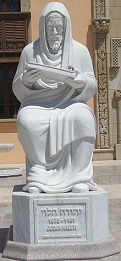
In 1141 Spanish Jewish physician-poet-philosopher Judah Halevi (1075-1141), fan of Al-Ghazali dies in the Holy Land, leaving The Book of the Kuzari: The Book of Proof and Evidence in Support of the Abased Religion, a dialogue between a rabbi and the pagan king of the Khazars on Judaism, claiming that God must be accessed through tradition and devotion, not philosophical speculation.

In 1159 Novara, Lombardy, Italy-born Roman Catholic bishop of Paris Peter Lombard (1096-1160)" pub. his magnum opus Four Books of Sentences (Opinions) (Sententiae Libri IV) (Libri Quattuor Sententiarum), authoritative statements on Biblical passages, which founds formal Scholastic Philosophy (Scholasticism), an attempt to reconcile reason and faith in the face of growing numbers of skeptics and atheists; a compilation of the thought of Peter Abelard, it is an attempt to solve all theological and philosophical problems, dissing reason for the authority of the Bible, becoming the std. text on theology in Paris for the next four cents., with 4K+ commentaries written on it, holding back the advance of rationalism for the next half-cent. until the arrival of Aristotle's works in Latin; Roger Bacon says that it has displaced the Bible itself; identifies charity with the Holy Spirit, and considers marriage as a consensual union that need not be consummated to be perfect.

About 1190 after moving to Fez, Morocco in 1159, pretending to be Muslim for nine years, then to Alexandria and Cairo in 1165, becoming chief physician of Saladin's vizier al-Qadi al-Fadil al-Baisani and Saladin's eldest son Nur-ud-Din Ali, rising to Ra'is al Yahud (Nagid) in 1176 (1177?), and going on to talk Saladin into letting Jews settle again in Jerusalem after he conquers it in 1187, Cordoba, Spain-born Sephardic Jewish philosopher Moses Maimonides (1135-1204) AKA Rambam (Rabbeinu Mosheh Ben Maimon) writes Guide for the Perplexed (Moreh Nevukhim or Nebuchim) (Delalatul Ha'yreen), one of the great philosophic statements of Judaism, attempting to reconcile Moses with Aristotle, fostering scholasticism and influencing Thomas Aquinas et al.; it tries to explain which words in the Bible should be taken literally, metaphorically, and symbolically, accepting the Creation but dissing personal immortality, Aristotelizing Bible stories, e.g., Abraham and Sarah represent matter and form, Adam is the active spirit, Eve is passive matter (the root of all evil), and the serpent is imagination, pissing-off orthodox rabbis, who accuse him of "selling the Scriptures to the Greeks", and Qabbalists, who desecrate his tomb; "My primary object is to explain certain words occurring in the prophetic books"; "A thing which has in itself the necessity of existence cannot have for its existence any cause whatever"; "Everything except God has been brought into existence out of nonexistence"; "Incorporeal entities can only be numbered when they are forces situated in a body"; written "to promote the true understanding of the real spirit of the Law, to guide those religious persons who, adhering to the Torah, have studied philosophy and are embarrassed by the contradictions between the teachings of philosophy and the literal sense of the Torah"; the main purpose is to expound on Maaseh Bereishit and Maaseh Merkavah, works of Jewish mysticism regarding the theology of creation from Genesis and the passage of the Chariot from Ezekiel, the two main mystical texts in the Tanakh (Hebrew Bible); written in Arabic in Hebrew chars., it is trans. into Hebrew in 1199-1204 by Samuel ben Judah ibn Tibbon, and also into Latin, causing a firestorm of controversy; "The first who openly declared that Scripture must be accomodated to reason" (Baruch Spinoza). He leaves the 14-vol. Mishneh Torah (Repeition of the Torah) AKA Sefer yad ha-Hazaka (Book of the Strong Hand, taken from the Hebrew letters Yod + Dalet = 10 + 4 = Yad), documenting all Jewish laws back to Temple days.

In 1274 Italian Dominican scholastic philosopher-theologian (blonde) ("Angelic Doctor") ("Prince of Scholastics") ("the Great Dumb Ox of Sicily") (St.) Thomas Aquinas (Thomas of Aquino) (1225-74) dies, leaving the unfinished Summa Theologica (Theological Compendium) (finished by his editor Reginald of Piperno?), an attempt to use the Aristotelian science and logic of the Averroists to justify the conclusions of St. Augustine and the Neoplatonists, while denying Averroes' double-truth theory that there is one truth in science and another in faith; incl. the Five Arguments for the Existence of God (Quinque Viae), the Prime Mover, who is perfect, omniscient, omnipotent, and free; after his work sinks in, it turns the Roman Catholic Church decisively Aristotelian, widening the split with the Eastern Orthodox Church, which remains Platonist and sinks into mysticism; Aquinas goes on to become the father of Roman Catholic theology, saving it after Western contact with the disturbing works of Aristotle, getting canonized in 1323, and proclaimed doctor of the Church in 1567.

On Nov. 8, 1308 Duns, Berwick County-born Scottish conservative Franciscan scholastic philosopher-theologian ("Doctor Subtilis") (Lat. "cunning linguist, er, teacher") John (Johannes) Duns Scotus (1270-1308) dies in Cologne, leaving Ordinatio (Opus Oxoniense), (12 vols.), containing 48 Distinctions, and lectures he delivered at Oxford U. in the 1290s commenting on The Sentences of Peter Lombard, containing his views on the univocity of being, the formal distinction, less than numerical unity, "thisness" (hacceity), a critique of illuminationism, and his argument for the existence of God, which he formulates as "God is more than existence" because every one of God's creatures is a sign (theophany) of his presence, and the Immaculate Conception of Mary, founding the Scotist School of Theology; his followers are called Dunsmen, Dunses or Duncemen, and as they come to resist the revival of classicism and progressive forms of learning, esp. Renaissance humanism, and "rage in every pulpit" in an obstructionist fashion, the term "dunce" is coined; his theory that the term "being" must be used univocally of God and creatures opens the door to modernity, materialism, and atheism? - the original Mel Gibson, or his daddy?

In 1328 German Dominican mystic theologian Meister Eckhart (Eckhart von Hochheim) (1260-1328) dies in Avignon while under trial for heretical opinions by Pope John XXII, leaving disciples John Tauler and Henry Suso; his vision of God emphasizes his fecundity, based on the Neoplatonic doctrine of ebullience (boiling over), making a distinction between God and Godhead (Unmanifest and Manifest Absolute).
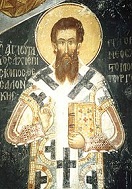
In 1357/9 Greek archbishop of Thessalonica (St.) Gregory Palamas (1296-1357/9) dies in Thessalonica (Thessaloniki) after winning a big theological debate with Italian Aristotelian scholar Barlaam of Seminara (Calabria) (Bernardo Mssari) (1290-1348) over Hesychasm, mystical contemplative prayer giving direct knowledge of God via his energies despite his essence being beyond our comprehension, with the soundbyte in "Triads for the Defense of Those Who Practice Sacred Quietude": "We attain to participation in the divine nature, and yet at the same time it remains totally inaccessible. We need to affirm both at the same time and to preserve he ntimony as a crierion for right doctrine", while Barlaam denied the distinction between God's essence and energies, claiming it impossible for humans to see God but only sense his influence indirectly, until he was condemned by an Orthodox Church council in 1341 despite support by Byzantine theologians and Thomas Aquinas disciples Gregory Akindynos (Gregorius Acindynus) (1300-48) (who was excommunicated by the Council of Constantinople in 1347), Nicephorus (Nicephoras) Gregoras (1295-1360) (who was declared heretical by a synod in 1351), and Prochoros Cydones (Kydones) (Prochorus Cydonius) (1330-69) (who was condemned by a synod in Apr. 1368 then excommunicated); after the Greek Orthodox Church makes him a saint, the split with the Aquinas-loving Latin Roman Church hardens; in 1360 the body of his anti-Hesychast rival Nicephoras Gregoras is dragged through the streets of Constantinople to jeers.

In 1380 Oxford U. theologian John Wycliffe (1324-84) gives a sermon in which he utters the soundbyte: "How should God approve that you rob Peter, and give this robbery to Paul in the name of Christ?"

On Aug. 11, 1464 Kues, SW Germany-born Roman Catholic mystic theologian Cardinal Nicholas of Cusa (Kues) (1401-64), fan of Meister Eckhart dies after developing his mystical philosophy of "learned ignorance", that it is not possible to know God except with the divine human mind.




With Catholic indulgences, crime does pay? The papal quest for filthy lucre finally reaps public reaction, creating the Protestant schism? On Oct. 31, 1517 (Wed.) (Halloween or All Hallows' Eve) German Roman Catholic Augustinian friar Martin Luther (1483-1546), after becoming sick of the indulgences peddled by Dominican friar Johann Teufel, er, Johann Tetzel (1465-1519) et al., and convinced that 1517 marks the end of the Babylonian Captivity of the Congregation, nails his Ninety-Five (95) Theses (Disputation on the Power of Indulgences) (written in Latin) to the door of the Wittenberg Palast (Palace) (Castle) Church in Saxony on the Elbe River (known for housing 5K+ holy relics, which he detests), arguing against indulgences and other Roman Catholic Church abuses, starting out pulling his punches then within a few years claiming that the pope is the Antichrist, "and his seat is that of Satan himself", and that "The treasures of indulgences are nets with which they now fish for the wealth of men", igniting the already-smoldering Protestant Reformation (he could have picked a more PC date than Halloween?); he really just sent them to Mainz archbishop Albert of Brandenburg that day, then posted them on the church door sometime in mid-Nov.?; his offer of a public debate is declined, but his theses are soon translated from Latin to German and pub., causing the German middle and merchant classes, who are already chafing at Italian efforts at domination to rise to his support in reaction to the fugging Fuggers (successor to the Medicis) and other papal bankers who are draining Germany of gold for Rome with this holy racket (the Fuggers are behind the loans made by Albert of Brandenburg to the pope); the big revelation to Luther that gave him strength was from the Bible, incl. the Seven Trumpets in Rev. Ch. 8, and Rev. 13:5, where it says that the Antichrist will rule the world for 42 mo., which he turns into 1260 years instead of days, setting year 1 in 539 C.E., and claiming that Christ will therefore return in the year 1799, thus it's time to get started whipping things up? - the wildlife experience, more than a museum?



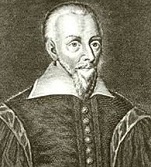
In 1531 freethinking Spanish physician Michael Servetus (1511-53) pub. On the Errors of the Trinity, containing the soundbytes: "In the Bible there is no mention of the Trinity... We get to know God, not through our proud philosophical concepts, but through Christ"; "How much this tradition of Trinity has alas, alas! been the laughing stock of Mohammedans only God knows. The Jews also shrink from giving adherence to this fancy of ours, and laugh at our foolishness about the Trinity, and on account of its blasphemies, they do not believe that this is the Messiah promised in their Law. And not only the Mohammedans and the Hebrews, but the very beasts of the field, would make fun of us, did they grasp our fantastic notion, for all the workers of the Lord bless the One God. This most burning plague, therefore, was added and superimposed, as it were, on the new gods which have recently come, which our fathers did not worship. And this plague of philosophy was brought upon us by the Greeks, for they above all men are most given to philosophy; and we, hanging upon their lips, have become philosophers, and they never understood the passages of the Scriptures which they adduced with regard to this matter"; too bad, he makes himself a target for the Catholic Inquisition and Protestants both. In 1540 after being forced to flee to Paris and change his name to Villanovus, Servetus discovers the Pulmonary Circulation of the Blood. On Oct. 27, 1553 French-born Protestant leader John (Jehan) Calvin (1509-64) of Geneva Switzerland, founder of Calvinism, known for the doctrine of Predestination burns his theological enemy, Unitarian (non-Trinitarian) Catalan scholar Michael Servetus (b. 1511) (who was captured while fleeing to his protection after escaping a prison of the Spanish Inquisition) in Geneva, executioner Guillaume Farel warning the audience: "(Servetus) is a wise man who doubtless thought he was teaching the truth, but he fell into the hands of the Devil... Be careful the same thing doesn't happen to you"; liberals lose their illusions about Bible-thumpers ever lightening up anything but a faggot, and a corner is turned in the fight for freedom of conscience? at his trial Servetus is ridiculed for describing Palestine as a sparse, sterile land when the Bible says it's the land of milk and honey; noted noble Paris-educated French Protestant ex-humanist poet Theodore Beza (1519-1605) backs Calvin up, as does #1 learned scholar of the age Sebastian Castellion (Catellio) (Chateillon) (Chataillon) (Castello) (1515-63), who in May 1554 pub. the pamphlet "Should Heretics Be Persecuted?" under the alias Martinus Bellius, containing the soundbyte: "When Servetus fought with reasons and writings, he should have been repulsed by reasons and writings", and throws Calvin's words back at him when he was being persecuted by the Roman Catholic Church: ""It is unchristian to use arms against those who have been expelled from the Church, and to deny them rights common to all mankind", ending with an argument for separation of church and state, with the soundbyte: "We can live together peacefully only when we control our intolerance. Even though there will always be differences of opinion from time to time, we can at any rate come to general understandings, can love one another, and can enter the bonds of peace, pending the day when we shall attain unity of faith" - I look bad, feel bad, which is most important?

On July 31, 1556 Spanish Basque Roman Catholic priest-theologian (St.) Ignatius of Loyola (Inigo de Onez y Loyola) (1491-1556) dies after founding the Society of Jesus (Jesuits) in 1541, who are bound by a vow of special obedience to the pope, becoming soldiers of the Counter-Reformation, and pub. Spiritual Exercises in 1548.
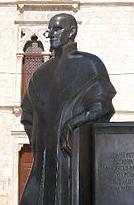
In 1571 Croatian-born Italian Platonic philosopher-scientist Franciscus Patricius (Francesco Patrizi or Patrizzi) of Cherso (1529-97) (student of Bernardino Telesio and master of Giordano Bruno) pub. Discussiones Peripateticae (Discussionum Peripateticorum) (15 vols.) (Basel), which claims that Aristotle's teachings directly oppose Christianity, while Plato's foreshadow it, attacking Aristotle's life and character and the authenticity of his works, attempting to refute his doctrines theologically. In 1591 he pub. Nova de Universis Philosophia (New Philosophy of Ideas) (Basel), which goes back to the Ionians and Presocratics to portray God as "First Light", which is later adopted by Galileo to mathematize physics.
In the early 17th cent. the Age of Reason (Rationalism) in W Europe begins with Rene Descartes, transitioning into the Age of Enlightenment in the 1650s.
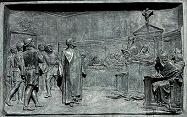



On Feb. 17, 1600 after Cardinal Robert Bellarmine (1542-1621) demands a full recantation of his philosophy, and he appeals to Pope Clement VIII hoping only for a partial recantation, and the pope responds by telling them to burn the bum, Italian philosopher Giordano Roddenberry, er, Giordano Bruno (b. 1548) tells them "Perhaps you, my judges, pronounce this sentence against me with greater fear than I receive it", then is led naked to the Campo de' Fiori in Rome, "his tongue imprisoned because of his wicked words", and burned at the stake for his heretical opinions, esp. the infinity of inhabited worlds; "He insisted till the end always in his damned refractoriness and twisted brain and his mind with a thousand errors. Yes, he didn't give up his stubbornness, not even when the court ushers took him away to the Campo de' Fiori. There his clothes were taken off, he was bound to a stake and burned alive. In all this time he was accompanied by our fraternity, who sang constant litanies, while the comforters tried till the last moment to break his stubborn resistance, till he gave up his miserable and pitiable life" (Fraternity of St. John the Beheaded, 1889); his works are placed on the Vatican's Prohibited Index in 1603, and he becomes a martyr to Trekkies, er, scientists, who claim he was burned just for his Copernican views, causing the Church to claim it was only because of his heretical religious beliefs, incl. that Jesus Christ was merely a magician, the Holy Ghost is the soul of the world, and the Devil can be saved, although the Church gives it away at the time by using the same rooms where he is questioned to persecute Galileo Galilei; his death seems to propel scientific effort in Protestant countries; in 1889 a monument to him backed by Victor Hugo, Herbert Spencer, Ernest Renan, Ernst Haeckel, Henrik Ibsen et al. is erected on the site of his execution, and another is erected in Berlin on Mar. 2, 2008; in 2000 Pope John Paul II expresses "profound sorrow" for what his church did - Burn Bruno Burn is how many years from Live Long and Prosper?

On Nov. 10-11, 1619 (St. Martin's Day) (night) after joining the Dutch States Army in 1618, La Haye en Touraine, France-born philosopher-mathematician (Roman Catholic) (Rosicrucian) ("Father of Modern Philosophy") Rene (René) Descartes (1596-1650) has divine visions in Neuburg an der Donau, Germany in which he "discovered the foundations of a marvelous science", which later becomes Analytic Geometry, along with his famous dictum "Cogito ergo sum" (Je pense donc je suis), causing him to dedicate his life to the mathematical basis of Nature; in 1620 he leaves the army, returning to the Dutch Repub. in 1628, spending 20 years formulating his philosophical works; in 1637 after the horrific Galileo affair, he pub. Discourse on Method (Discourse on the Method of Rightly Conducting One's Reason and Seeking Truth in the Sciences (Discours de la Methode pour bien Conduire sa Raison, et Chercher le Verite dans les Sciences); an epoch-making work expounding the technique of divide and conquer, containing the three appendices (Qui Sont des Essais de Cete Methode): La Dioptrique, advancing the corpuscular theory of light; Les Meteores: Traite de la Lumiere, on cosmology; and La Geometrie, founding the field of analytic geometry and introducing the concepts of a coordinate plane and a mathematical function. In 1644 he pub. Principia Philosophiae (Principles of Philosophy) in Amsterdam, containing the ultimate philosophy soundbyte "Je pense, donc je suis" ("I think, therefore I am"); too bad, it kowtows to the Roman Catholic 1616 anti-Copernican decree by stating that "I want what I have written to be taken simply as an hypothesis, which is perhaps far removed from the truth"; it declares that all motion is relative, thus the Earth can be considered at rest like the Church dictates, drawing criticism from Newton; also that bodies can act on each other only through contact; famous for its diagrams of vortices in which planets are carried in the whirlpool of subtle matter around the Sun - don't try to fight it, don't try and save me, she's a woman in love? In 1662-4 he posth. pub. Treatise on the World, proposing the Dualistic Model of Reality, mind vs. matter.

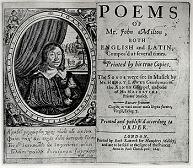
On Sept. 29, 1634 (Michaelmas) Cheapside, London-born Cambridge U. grad (1629) ("the Blind Poet") John Milton (1608-74) presents the masque Comus: A Mask Presented at Ludlow Castle, 1634, on Michaelmas Night, before the Right Honorable John, Earl of Bridgewater, Viscount Brackly, Lord President of Wales, and One of His Majesty's Most Honorable Privy Council, about the Lady, who gets lost in the woods and encounters Comus, the god of revelry, who offers to help her find her lost brothers and kidnaps her instead and takes her to his pleasure palace and ties her to an enchanted chair with "gums of glutinous heat", attempting to talk her into doing the wild thing with him, while she fends him off with philosophy; meanwhile her brothers come upon the Attendant Spirit in the form of a shepherd, who rescues her, after which Severn River water nymph Sabrina frees her from the chair. In 1638 he pub. Lycidas, a pastoral elegy composed in memory of his Cambridge U. classmate Edward King, who drowned in Aug. 1637 when his ship sank in the Irish Sea off the coast of Wales. In 1645/6 he pub. Poems of Mr. John Milton both English and Latin, Compos'd at Several Times; pub. by royalist Humphrey Moseley; rev. ed. pub. in 1673; it incl. On the Mourning of Christ's Nativity; also L'Allegro (The Merry Man) and Il Penseroso (The Serious Man), becoming the most famous companion poems in English lit.? In 1667 he pub. his magnum opus Paradise Lost (10 vols.); 12-vol. 2nd ed. 1674; composed in1658-65 after going blind in 1652, and finished during the Great Plague at Milton's Cottage in Chalfont St. Giles, Buckinghamshire; the Biblical story of the Fall of Man incl. the temptation of Adam and Eve by Satan and their expulsion from the Garden of Eden; Lucifer's capital is called Pandemonium; "To reign is worth ambition, though in Hell./ Better to reign in Hell than serve in Heaven" (Lucifer); "Their maker, or their making, or their Fate;/ As if Predestination over-rul'd/ Their will, dispos'd by absolute Deree/ Or high foreknowledge; they themselves decreed/ Their own revolt; not It if I foreknew,/ Foreknowledge had no inference on their fault;/ Which had no less prov'd certain unforeknown"; "I formed them free, and free they must remain,/ Till they enthrall themselves I else must change/ Their nature, and revoke the high Decree/ Unchangeable, Eternal, which ordained/ Their freedom; they themselves ordained their fall"; After being sent to warn Adam of Satan's plan, Adam quizzes archangel Raphael on Creation, and gets the reply "The rest from Man or Angel the great Architect did wisely conceal,/ and not divulge His secrets to be scann'd by them who ought rather admire"; after Eve puts him up to it, Adam begs God for forgiveness, causing Archangel Michael to show him a vision revealing everything that will happen to mankind until the Great Flood, ending with mankind's redemption from original sin by Jesus Christ, after which Adam and Eve are cast out of Eden, and Michael utters the soundbyte that Adam may find "a paradise within thee, happier far"; sells 1.3K copies in 18 mo., helping make Milton the #1 English poet of all time - red anti-MF ribbon for astoundingly good sense of timing? In 1671 he pub. Paradise Regained (4 vols.); composed in 1665-7 in his cottage in Chalfont St. Giles, Buckinghamshire; the temptation of Christ according to the Gospel of Luke.






In 1642 too bad for King James I, his beautiful poetic English Bible caused a fundamentalist religious revolution in Britain with Bible-thumpers called Puritans, who started the English Civil War (1642-51) and beheaded his son Charles I (1600-49) in 1649 and set up a Bible-thumping theocracy under Oliver Cromwell (1599-1658), who was known for three big moles on his face, which he ordered his portrait painter not to coverup, with the immortal soundbyte "Warts and all". That same year English Baptists Ebenezer and Joanna Cartwright wrote from Amsterdam, calling for Parliament to lift the ban on Jews in England, from which they had been expelled since the days of Edward I Longshanks (1290).
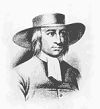
In 1647 after having a vision on rainy Pendle Hill in Lancashire, claiming that "the Lord let me see in what places he had a great people to be gathered", leaving his hometown of Drayton-in-the-Clay in Sept. 1643 to travel through civil war-filled England, learning to listen to his "inner light" and reject rituals, church buildings, and age-sex qualifications for the religious ministry (giving the right to women and children), Leicestershire, England-born Puritan George Fox (1624-91) begins to speak publicly, founding the Religious Society of Friends (Quakers), who believe it possible to have a direct experience of Christ without the need for clergy, making fans of William Penn and Oliver Cromwell. In Oct. 1650 defiant English preacher (Leicestershire cobbler) George Fox (1624-91) from Fenny Drayton in the Midlands, who got fed up with all the religious hypocrisy and began wandering and preaching, only to be arrested for it, thunders from the dock in court on a charge of illegal preaching that it was not he but the judge Gervase Bennett (1612-) who should "tremble at the word of the Lord"; the latter replies that the only "quaker" in court is Fox himself, and the name Quakers sticks; by 1680 membership in England and Wales reaches 60K (1.5% of the pop.).
In 1650 the European pop. of Ashkenazi Jews was 100K (vs. 2M in 1800, 8M in 1900). That year Portuguese-born Dutch rabbi Menassah ben Israel (Manoel Dias Soeiro) (1604-57) (teacher of Spinoza) pub. Hope of Israel, arguing for readmission of Jews to England with the killer argument that until Jews live in all lands Christ won't return. The same year Irish archbishop James Ussher (1581-1656) pub. Annals of the World: The Origin of Time, and Continued to the Beginning of the Emperor Vespasian's Reign and the Total Destruction and Abolition of the Temple and Commonwealth of the Jews (Annales Veteris Testamenti, a Prima Mundi Origine Deducti), a 1600-page Latin tome that uses the Bible to date the creation of the world to Sunday, October 23, 4004 B.C., no surprise a Christian would have it on Sunday not Saturday or Friday. T he immediate result was to put the pressure on Bible-thumpers to figure out when and how the world will end with a victory for their precious Christ, forcing them to factor the pesky Jews in. In 1654 the first Jew, Jacob Barsimson emigrated from Holland to New Amsterdam (later New York), after which many more Jews followed him to New Amsterdam and Newport, R.I., going on to establish trade with the Indians in firewater and cheap trinkets and pump up the African slave trade. Also in 1654 the Portuguese under Joao IV the Fortunate won a naval V over the Dutch off the coast of Brazil (first 1649), and took Brazil back from them, bringing the Inquisition with them, causing the Jews to flee, and the first group of Jews in North America arrived in New Amsterdam from Brazil, 23 Sephardic Jews from Recife who had been expelled from Spain in 1492, sought refuge in Holland, then migrated to Dutch-occupied Brazil), and founded Congregation Shearith Israel, the city's only Jewish synagogue until 1825. The Jews now had a beachhead in the New World, and unlike Europe, the govt. imposed virtually no restrictions on them, and let them accumulate unlimited wealth without confiscating it, causing the unique American Jew to develop - 335 years to Seinfeld. In Dec. 1655 after Portuguese-born Dutch Jewish leader Menasseh ben Israel (Manoel Dias Soeiro) (1604-57) (teacher of Baruch de Spinoza) arrives in London and Oliver Cromwell summons the Whitehall Conference, the Jews are officially readmitted to England for the first time since 1290, with Portuguese Jewish merchant Antonio Fernandez Carvajal (1590-1659) becoming #1; Spanish Marrano Jews posing as Roman Catholics had already been living in England, and next year when England declares war against Spain they are forced to admit their Judaism to avoid arrest; they bought their way back in by financing Cromwell's civil wars? - I'm a menudo guy, alright? When Cromwell died, the English freaked at the approaching Millennial Fever Year 1666 and invited Charles I's son Charles II (1630-85) back in on a red carpet in 1660, and he had Cromwell's body dug up and desecrated, his head passed around as a toy; it wasn't until Mar. 25, 1960 that his grisly head-on-a-spike, finally came to a rest on the grounds of Cambridge U., where it was buried near a chapel at Sidney Sussex College.
In the 1650s the Age of Enlightenment (Reason) begins in W Europe (until 1789), with coffeehouse and salon thinkers (philosophes) backed by the Masonic movement challenging the authority of the Church and promoting reason and individualism, causing more and more brain men to vote with their feet by leaving the ranks of churchmen and joining the ranks of scientists.

On Aug. 16, 1662 French savant mathematician-physicist-philosopher Blaise Pascal (b. 1623) blazes out in Paris at age 39 after rejecting medical care, with the soundbyte: "Sickness is the natural state of Christians"; last words: "May God never abandon me"; he leaves Pensees (Pensées) (Fr. "Thoughts") (pub. 1670), which anticipates Existentialism, Pragmatism, and Voluntarism, and contains the first formal use of decision theory; section 180 incl. the immortal soundbyte: "Had Cleopatra's nose been shorter, the whole face of the world would have been changed"; section 223 contains Pascal's Wager, which claims that there is an infinite gain or loss if God exists, hence a rational person should live as though he does, because if God does not exist, there is only a finite possible loss; "We are incapable of knowing either what [God] is or whether he is... Reason cannot decide this question. Infinite chaos separates us. At the far end of this infinite distance a coin is being spun which will come down heads or tails. How will you wager?"; Pascal becomes the first modern philosopher, who sees that the existence of God can neither be proved nor disproved, and that belief is a matter of choice; "When I see the blind and wretched state of man, when I survey the whole universe in its dumbness and man left to himself with no light, as though lost in this corner of the universe, without knowing wh put him there, what he has come to do, what will become of him when he dies, incapable of knowing anything. I am moved to terror, like a man transported in his sleep to some terrifying desert island, who wakes up quite lost with no means of escape. Then I marvel that so wretched a state does not drive people to despair"; "For after all what is man in nature? A nothing in relation to infinity, all in relation to nothing, a central point between nothing and all and infinitely far from understanding either. The ends of things and their beginnings are impregnably concealed from him in an impenetrable secret. He is equally incapable of seeing the nothingness out of which he was drawn and the infinite in which he is engulfed"; "Diversion is the only thing that consoles us in our wretchedness, and yet diversion is itself the greatest of our miseries. For it is diversion above all that keeps us from seriously taking stock of ourselves and so leads us imperceptibly to perdition": "Men never do evil so completely and cheerfully as when they do it from religious conviction"; "The heart has its own reasons which reason does not know" - he quit thinking and was not?






In 1666 speaking of Jewish Messiahs with designs on riding into Jerusalem, Millennium Fever hits the Christian world again, and this time Smyrna-born Qabbalistic Jewish rabbi Sabbatai (Shabbethai) Zevi (1626-76) milks it for all it was worth, proclaiming himself the Messiah in 1648, moving to Cairo and getting rich, proclaiming himself again in 1665 in Aleppo, Syria in a Jewish synagogue, making him famous throughout Europe and causing groupies from as far away as France to arrive. Too bad, in the Big Year 1666 he made the mistake of going to Constantinople to crown himself sultan with the help of Jehovah, who didn't go along with it, and he is arrested and imprisoned, but bribes his way out, and escapes beheading by pretending to convert to Islam and donning a turban, which pleases the real sultan, who makes him the royal doorkeeper, but after he is caught trying to convert Muslims to Judaism on the sly, he is banished to Montenegro until he croaks, after which his diehard followers continue his Sabbatean Cult to this day, with 100K true believers in today's Turkey, some of whom were alleged to be behind Zionism and Freemasonry, stay forever young.
By the way, 1666 was another big Millennium Fever year that was fueled by the Great London Fire of 1666, but it was also the Annus Mirabilis of the #1 scientist of all time (like TLW, ever-single but unable to stop his giant brain from having constant lightning storms, so what woman could have stood him?) Sir Isaac Newton (1643-1727), when he had the episode with the apple in his mommy's orchard in Lincolnshire and discovered the basic physical laws of the Universe, friction equals male organ times apple, he had his brains on the problem, stop using your hands and use your head. Oh yes, Newton was a secret Arian, leaving a Bible-thumping treatise preaching against the Trinity along with his trunk full of alchemical researches, call him the Middle Man, one foot in the stuperstitious past, the other in the Allah-free George Jetson future, pass the Fig Newtons and Vaseline. But even a brainy English goy needs help if he's going to get to the Chosen People. Lucky for Newton, about the same time as him, Baruch (Benedict) de Spinoza (1632-77), a Dutch philosopher of Portuguese Jewish origin created a rationalistic atheistic-pantheistic version of Judaism, incl. modern Biblical criticism, taking on the age-old mind-body dualism in his posthumous "Ethics", and perhaps doing more to create the modern secular Westerner than anybody because he caused an exodus of the brainiest Jews from the theological and philosophical camp to the scientific camp just as the horrible Ottoman Empire was being rendered impotent militarily. Lucky for us Westerners, the Jews were living on our side of the Christian-Muslim divide by then.

In 1670 after breaking with Judaism after his father dies and going rationalist, pioneering modern Biblical criticism, Amsterdam-born Dutch Jewish philosopher Baruch (Benedict de) Spinoza (1632-77) anon. pub. Tractatus Theologico-Politicus, becoming the first Jewish philosopher to break from 12th cent. Spanish Jew Moses Maimonides, no longer reading the Bible homiletically or allegorically, but rationally, laying the foundations for modern textual criticism and fostering the eternal split between rationality and faith, claiming that if one interpreted the Bible through reason, it proves to be a human not a divinely inspired document; he also shows the contradiction between being a traditional Jew and a true liberal, pissing-off Jews with his rejection of the idea of a Chosen People, claiming that Jews survive by separatism, circumcision, and Gentile hatred, and that the Torah is the constitution of a Jewish state, hence kaput. On Feb. 21, 1677 he dies in The Hague of TB or silicosis caused by glass dust from his lens grinding trade, leaving Ethics, Demonstrated in Geometrical Order, a philosophical treatise that tries to mimic Euclid's Elements, "the last indisputable Latin masterpiece, and one in which the refined conceptions of medieval philosophy are finally turned against themselves and destroyed entirely", causing Georg Wilhelm Friedrich Hegel to later utter the soundbyte: "You are either a Spinozist or not a philosopher at all"; Pt. 2 focuses on the human mind and body, disputing Rene Descartes' mind-body dualism, arguing that they are one; Pt. 3 attempts to show that moral concepts incl. good, evil, virtue, and perfection have a basis in human psychology; "A free man thinks of nothing less than of death"; "The human mind cannot be absolutely destroyed with the body, but something of it remains which is eternal"; "When the mind imagines its own lack of power, it is saddened by it".

On July 5, 1687 English #1 superbrain Sir Isaac Newton (1643-1727) pub. Philosophiae Naturalis Principia Mathematica (pr. prin-KIP-ee-ya), founding celestial and terrestrial mechanics with his Three Universal Laws of Motion, proving the inverse square law of gravitation and many other basic results after a bitter feud with Robert Hooke (1635-1703) over priority; the rough ms. is finished on June 20, 1686, but he adds a section on comets with the help of John Flamsteed; the preface acknowledges Edmund Halley, saying "it was through his solicitations that it came to be published"; "But hitherto I have not been able to discover the cause of those properties of gravity from phenomena, and I frame no hypothesis; for whatever is not deduced from the phenomena is to be called an hypothesis; and hypotheses, whether metaphysical or physical, whether of occult qualities or mechanical, have not place in experimental philosophy. In this philosophy particular propositions are inferred from the phenomena, and afterwards rendered general by induction. Thus it was that the impenetrability, the mobility, and the impulsive force of bodies, and the laws of motion and of gravitation, were discovered. And to us it is enough that gravity does really exist, and act according to the laws which we have explained, and abundantly serves to account for all the motions of the celestial bodies and of our sea"; "This most beautiful system of the sun, planets and comets could only proceed from the counsel and dominion of an intelligent and powerful Being... He is eternal and infinite, omnipotent and omniscient; that is, his duration reaches from eternity to eternity; his presence from infinity to infinity; he governs all things, and knows all things that are or can be done... We know him only by his most wise and excellent contrivances of things, and final causes; we admire him for his perfection, but we reverence and adore him on account of his dominion; for we adore him as his servants; and a god without dominion, providence, and final causes is nothing else but Fate and Nature. Blind metaphysical intensity, which is certainly the same always and everywhere, could produce no variety of things. All that diversity of natural things which we find suited to different times and places could arise from nothing but the ideas and will of a Being necessarily existing."


About 1730 English Bible-thumping brothers John Wesley (1703-91) (of Lincoln College) and Charles Wesley (1707-88) (of Christ Church) found the Protestant sect of Methodism at Oxford U. in England, turning the taunts of fellow students into their name; their views are soon taken up by "Calvinistic Methodist" George Whitefield, and spreads to the U.S. and other countries via outdoor preaching, reaching 80M followers by modern times; their theology focuses on sanctification and the effect of faith on character (people are dead in sin by nature, hence children of wrath, and are justified by faith alone, with the love of God reigning supreme in their hearts, giving them outward holiness and allowing them to experience Jesus Christ personally), with the main doctrines incl. the primacy of Scripture, assurance of salvation, imparted righteusness, the possibility of perfection in love, and works of piety, clinging to the Arminian doctrine that salvation is available to all and rejecting the Calvinist doctrine that God has pre-ordained a select group of people to be saved, becoming popular with the worknng class and black Am. slaves; Methodists go on to engage in charitable work for the sick and poor, and to get deep into music and hymns.

In 1739 Edinburgh, Scotland-born empiricist philosopher David Hume (1711-76) ("widely regarded as the greatest who has ever written in the English language") pub. his magnum opus A Treatise of Human Nature (2 vols.) (1739-40), which denies the existence of innate ideas, claiming that all contents of mind are solely built from sense experiences, and dissing Rene Descartes, claiming that desire rather than reason governs human behavior, pioneering Logical Positivism (Empiricism); too bad, it is ignored by the public, causing him to call it "dead-born", until Immanuel Kant credits him with awakening him from "dogmatic slumbers" about 1770; "There is more to be learned from each page of David Hume than from the collected philosophical works of Hegel, Herbart and Schleiermacher taken together" (Arthur Schopenhauer).

On hot-hot-hot July 8, 1741 the Great Awakening reaches a peak as Jonathan Edwards (1703-58) delivers his Sinners in the Hands of an Angry God speech in Enfield, Mass., featuring lurid word pictures of Da Judge Bible God Jehovah, who "holds you over the pit of Hell, much as one holds a spider, or some loathsome insect, over the fire, abhors you, and is dreadfully provoked... He looks upon you as worthy of nothing else, but to be cast into the fire"; the Great Awakening splits New England Puritanism into the "Old Lights" and the "New Lights", who go over to the Baptists, Presbyterians, or Methodists; the Am. colonies are prepared for rev. by the Great Awakening?

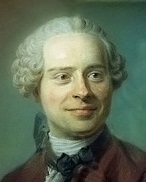
In 1746 Paris-born French Enlightenment philosopher Denis Diderot (1713-84) anon. pub. his first work Philosophical Thoughts (Pensées philosophiques), arguing for a reconciliation of reason with feeling, and attempting to prove the existence of the Deist God from the organization of seeds, insects, etc.; "The Christian God is a father who prizes his apples but sets little value on his children"; "We are constantly railing against the passions; to them we ascribe all of man's afflictions while forgetting that they are the source of all pleasures...But what provokes me is that only their adverse side is considered... And yet only passions and great passions can raise the soul to great things. Without them the sublime no longer exists either in morals or in creativity"; "People begin to speak to us of God too soon, and another mistake is that his presence is not sufficiently insisted upon. Men have banished God from their company and have hidden him in a sanctuary; the walls of a temple shut him in, he has no existence beyond. Fools that you are, break down these limitations that hamper your ideas; set God free; see him everywhere, as he is everywhere, or say that he is non-existent. If I had a child to bring up, I would make his God his companion in such a real sense that he would perhaps find it less difficult to become an atheist, than to escape his presence. Instead of confronting him with a fellow-man (whom maybe he knows to be worse than himself) I would say outright: 'God hears you and you are lying.' Young people are influenced by their senses. I would multiply about him symbols indicating the divine presence. If there were a gathering at my house, I would leave a place for God, and I would accustom him to say: 'We were four - God, my friend, my tutor, and myself'"; in July the Paris Parlement orders it to be publicly burned, but can't obtain a copy, burning some random papers, making it more popular, causing him to be found out and invited to edit a French tr. of the 1728 English "Cyclopedia" of recently-deceased lexicographer Ephraim Chambers (1660-1740), and he hooks up with Jean Le Rond d'Alembert and ramps up the project into a propaganda campaign against the Church and feudal society, esp. in France, with vol. 1 pub. in 1751; in 1747 he writes The Skeptic's Walk (Promenade du sceptique), a dialogue between a deist, atheist, and pantheist on the nature of God, which pisses-off the local authorities, who seize the ms., causing pub. to be delayed until 1830; too bad, he flip-flops, and in 1749 he pub. A Letter to the Blind for the Use of Those Who See (Lettre sur les Aveugles a l'Usage de Ceux quit Voient), finding no need of a Creator because nothing but matter exists, with all its laws, and there is no God but Nature, denying that he is an atheist but in light of Deism's Hidden God concluding that he didn't care whether God existed or not, with the soundbyte: "I believe in God, although I live very well with the atheists... It is... very important not to mistake hemlock for parsley; but to believe or not to believe in God is not important at all"; too bad, the French govt. imprisons him for his revolutionary public atheist stance, but his friends get him out in a few mo.; in July he is moved from the Bastille to Vincennes when the former gets overcrowded. In 1751 Diderot and Jean le Rond d'Alembert (1717-83) begin pub. the Encyclopedie, ou dictionnaire raisonné des sciences, des arts et des métiers ( (17 vols.), filled with articles by many named contributors that take a skeptical attitude to Biblical miracles, pissing-off the Roman Catholic Church, which bans it in 1758, followed by the French govt. in 1759, causing d'Alembert to quit, leaving Diderot as the sole editor and main contributor, going on to write 7K articles by 1765, suffering obscurity and ostracism until Russian empress Cathering the Great pays him 50K francs to serve as her librarian in 1766.

In 1747 French Englightenment philosopher-physician Julien Offray (Offroy) de la Mettrie (1709-51) pub. Man A Machine (L'homme machine); written at the court of Frederick II the Great; argues that thought is a property of organized matter, and reduces philosophy to a fight between spiritualists (boo) and materialists (hooray): "The brain has muscles for thinking as the legs have muscles for walking" - what about that third leg?
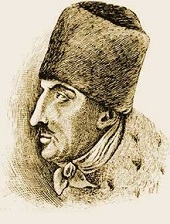
In 1757 in Poland Jacob Frank (1726-91), leader of the anti-Talmud Zoharistic Jews talks Bishop Mikolaj Dembowski of Kaminiec Podolski into ordering all 10K copies of the Talmud in the city burned, after which the rabbis begin persecuting him and he responds by declaring himmself the successor of Sabbatai Zevi and Osman Baba, converting to the Christian religion, causing Roman Catholics and Protestants to vie for their allegiance, and in 1759 Frank and his followers are baptized in the churches of Lwow, with members of the Polish nobility (szlachta) acting as godparents; on Sept. 17, 1759 Frank is baptized in Lwow under the name Joseph (Jozef), and again on Sept. 18 in Warsaw, with Augustus II as his godfather. Too bad, on Feb. 6, 1760 Frank is arrested in Warsaw for heresy, and imprisoned for 13 years in the Czestochowa Monastery, turning him into a martyr while he proclaims his new religion of Daas (Heb. "knowledge"); after his release in Aug. 1772, he lives in Brno, Moravia until 1786, receiving royal visitors incl. Tsar Paul I of Russia and Emperor Joseph II of Austria while making fans of Maria Theresa, until he gets to uppity and is exiled to Offenbach, Germany with his daughter Eve Frank (-1816), who takes over after he dies; the mothers of Frederic Chopin, Adam Mickiewicz, and Julius Slowacki are converted Frankist Jews?

In 1758 after going from an inventor-scientist to a visionary on Apr. 6, 1744 (Easter), receiving a revelation that he was appointed by Jesus Christ to reform Christianity, with the power to freely visit heaven and hell and converse with angels and demons, claiming that the Last Judgment occurred in 1757, Swedish Emanuel Swedenborg (nee Swedberg) (1688-1772) pub. his magnum opus Heaven and Hell (Heaven and its Wonders and Hell from Things Heard and Seen), claiming to give a detailed description of the afterlife, where we go through several spiritual reincarnations.

On Mar. 1, 1768 Hamburg-born German Enlightenment philosopher Hermann Samuel Reimarus (1694-1768) dies in Hamburg after founding Deism, which denies the existence of the supernatural and considers God to be the Great Watchmaker of the Universe, who created it and set it in motion then left it alone; he also leaves the first critical historical analysis of Jesus Christ, arguing that he simply wanted to found a godly state, and died in despair when he failed, with the idea that he died to atone for mankind's sins attributed to St. Paul, making Jesus the teacher of a "remarkable, simple, exalted, and practical religion."

In 1770 Edesheim-born French-German atheist philosopher Paul-Henri Thiry, Baron d'Holbach (nee Paul Heinrich Dietrich) (1723-89) pub. The System of Nature; or, The Laws of the Moral and Physical World under the alias Jean-Baptiste de Mirabaud, denying the need for a Creator to explain Nature, and flaunting the ahead-of-his-time atheistic attitude that any and all belief in gods and/or religions is backward superstition; belief in gods started with primitive animism, which went bad when men created gods in their own image, progressively merging them into "a gigantic, exaggerated man, whom they will render illusory by dint of heaping toether incompatible qualities. Human being will never se in God, but a being of the human species, in whom they will strive to aggrandize the proportions, until they have formed a being totally inconceivable; "Nature is not a work; she has always been self-existent; it in her bosom that everything has operated; she is an immense laboratory, provided with the materials, and who makes the instruments of which she avails herself to act. All her words are the effect of her own energy, and of those agents or causes which she makes, which she contains, which she puts in action"; draws refutations by Frederick II the Great and Voltaire - the first open avowed atheist since?

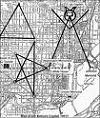
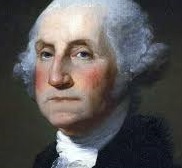







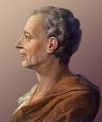





It took 1300 years after the fall of Rome for the West to finally get its act together with the American Revolution in 1775-83, a new beginning for humanity that reached back to the ancient Greeks and made use of all the wisdom since, becoming the greatest breakthrough in human liberty ever seen, making the U.S. Da (don't say Great White) Hope of Da Non-Allah-Submitting World ever since. No Mel, it wasn't a Jewish plot, or if so, they must have made up with the ancient pagan Greeks who liked to exercise naked with their uncircumcised dongs swinging like your Celt ancestors, how'd you get so rich? Some of the great Founding Fathers included George Washington (1732-99), Thomas Jefferson (1743-1826), James Madison (1751-1836), John Adams (1735-1826), Alexander Hamilton (1755-1804), Benjamin Franklin (1706-90), and Thomas Paine (1737-1809). They all based their philosophy on English big brain John Locke (1632-1704), ("Father of Liberalism"), French big brain Charles-Louis de Secondat, Baron Montesquieu (1689-1755), and Scottish big brains David Hume (1711-76), and Adam Smith (1723-90), but went way beyond them. Where did the U.S. Founding Fathers get their great ideas? Answer: they were historyscopers. Back then they didn't have the Internet like TLW, so access to historical materials was limited to the wealthy, and only those with great gobs of leisure time could absorb it all, so there these white English dudes were, hanging out in the libraries and studies in their mansions while their slaves supported them. No wonder they had an ambivalent attitude toward slavery, knowing that it was wrong but also not wanting to have to get a day job, but hedging their bets by laying the groundwork for racial equality on paper, while playing it safe and leaving the matter to posterity. Benjamin Franklin was an exception, a self-made man, so no surprise that he finally made peace with his conscience and denounced slavery just before he croaked of ripe old age. Tom Paine was a radical Freethinker who saw the French Revolution firsthand, and was always living off the income from his sensational writings, incl. The Age of Reason (1794-1807) (an American bestseller that argues for the existence of one God, but dissects the Bible as full of errors and contradictions, and slams the Bible god Jehovah as not the real God, but a tribal god of the Hebrews, little more than a bloodthirsty idol, not worthy of belief, too bad that Jefferson didn't loan him his Quran so he could tear it apart too), so of course he was the most vehement in denouncing slavery, knowing that they'd consider all his ideas kooky but cool enough to read in the loo. They were all ahead of their time, and the rest of the world is still catching up to their sound ideas, the world's main chance. Yes, there are still Deists around, and they do sometimes tear into the Quran, go Deists. So sorry, Pres. Obama,there wasn't a Muslim among them, but there were a lot of Freemasons among them, and they even laid out the U.S. capital city Washington, D.C. in a Masonic configuration. There were also Jews among them. In Germany in 1776 the mysterious Bavarian Order of the Illuminati was founded by Johann Adam Weishaupt (1748-1830), allegedly secretly funded and masterminded by German Jewish banker Mayer Amschel Rothschild (1744-1812), the father of international banking (a Spinoza disciple), with a general plan of destroying the Christian order in Europe by infiltrating and turning nation against nation until it all turns to crap, then stirring the crap to create a dNew World Order (NWO), and which somehow was allegedly behind the American Revolution, the French Revolution, the Revolutions of 1848, the U.S. Civil War, the Russian Revolution, World Wars I and II, the League of Nations and U.N., and which is supposedly on its game to this day and will be there if/when there's an Armageddon, stay tuned to Armageddon Idol starring Simon Scowl. Alexander Hamilton was allegedly a secret Rothschild agent, which is why he pushed the creation of the First U.S. National Bank on Feb. 25, 1791, which became the mission of U.S. pres. #7 (1829-37) Andrew Jackson (1767-1845) to free the U.S. from, which he did, only to have it come back bigtime on Dec. 23, 1913 with the Federal Reserve - Illuminati shark music here?

In 1776 27-y.-o. French mathematician brain man Pierre Simon Laplace (1749-1827) pub. the alluring theory that if we know all of the forces on all objects at any one time, then Da Future can be completely predicted - actions can happen at any time, that's why Newton's Law is here? In 1796 he pub. his Nebular Hypothesis. He goes on to pioneer the Laplace Transform, the Laplacian (Laplace Operator), and Laplace's Equation. When Napoleon finds that his work never mentions God and asks him, "Who is the author of all this?", Laplace replies, "I have no need for that hypothesis" (Je n'avais pas besoin de cette hypothèse-là); when the amused Napoleon relays this to his rival Joseph-Louis Lagrange, he replies, "Ah, it is a fine hypothesis; it explains many things" (Ah! c'est une belle hypothèse; ça explique beaucoup de choses).

On May 30, 1778 after a dazzling career cranking out 20K letters and 2K books and pamphlets criticizing the Bible, the Roman Catholic Church, and Islam, advocating freedom of religion, thought, and speech, and separation of church and state, spending time in the Bastille and returning to Paris for the first time in 20 years and falling ill, French Englightenment philosopher (Deist) (known for his lightning wit and satire) Voltaire (Francois-Marie Arouet) (1694-1778) dies, leaving Mahomet the Prophet; or, Fanaticism (play) (1741), Zadig; or The Book of Fate (novel) (1747), Micromegas (Micromégas) (short story) (1752), Candide; or Optimism (novel) (1759), and Philosophical Dictionary (Dictionnaire Philosophique) (1764); "[The ideal religion]: Would it not be that which taught much morality and very little dogma that which tended to make men just without making them absurd? That which did not order one to believe in things that are impossible, contradictory, injurious to divinity, and pernicious to mankind, and which dared not menace with eternal punishment anyone possessing common sense? Would it not be that which did not uphold its belief with executioners, and did not inundate the earth with blood on account of unintelligble sophism?... which taught only the worship of one god, justice, tolerance and humanity?"; "What conclusion can we draw from all this? That atheism is a monstrous evil in those who govern; and also in lettered men even if their lives are innocent; because from their studies they can affect those who hold office, and that, even if it is not as hateful as fanaticism, it is nearly always fatal to virtue. Above all, let me add that there are fewer atheists today than there have ever been, since philosophers have perceived that there is no vegetative being wihtout germs, no germ with design, etc."; "He who has heard the same thing told by 12,000 eye-witnesses has only 12,000 probabilties, which are equal to one strong probability, which is far from certainty"; "Historians are gossips who tease the dead"; "History is filled with the sound of silken slippers going downstairs and wooden shoes coming up"; "All the ancient histories, as one of our wits say, are just fables that have been agreed upon"; "If God did not exist, it would be necessary to invent him" (Nov. 10, 1770); "Christianity is the most ridiculous, the most absurd and bloody religion that has ever infected the world"; "Originality is nothing but judicious imitation"; "No snowflake in an avalanche ever feels responsible"; "To learn who rules over you, simply find out who you are not allowed to criticize"; "But that a camel-merchant [Muhammad] should stir up insurrection in his village; that in league with some miserable followers he persuades them that he talks with the angel Gabriel; that he boasts of having been carried to heaven, where he received in part this unintelligible book, each page of which makes common sense shudder; that, to pay homage to this book, he delivers his country to iron and flame; that he cuts the throats of fathers and kidnaps daughters; that he gives to the defeated the choice of his religion or death: this is assuredly nothing any man can excuse, at least if he was not born a Turk, or if superstition has not extinguished all natural light in him." In 1864 his tomb is opened and discovered to be empty.
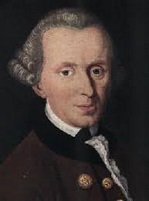
In July 1781 after setting out to explore the limits and conditions of knowledge, Konigsberg, Prussia-born German philosopher Immanuel Kant (1724-1804) pub. Critique of Pure Reason (Kritik der Reinen Vernunft) in Riga (2nd ed. 1787), which rejects David Hume's extreme empiricism, proposing that there is more to knowledge than bare sense experience, distinguishing between "a posteriori" and "a priori" knowledge, the former derived from perception, hence occurring after it, and the latter a property of thought, independent of experience and existing before it, founding the Idealist School of Philosophy, which promotes Transcendental Idealism and the Transcendental Aesthetic, dividing knowledge into sensible (based on the senses) and logical (based on reason) - I know what I want to say but it takes so many pages to say it? In 1785 he pub. Foundations (Groundwork) (First Principles) of the Metaphysics of Morals (Ethics); presents the concept of the Categorical Imperative, which tells us which actions are obligatory and which forbidden, all without mean old Jehovah and his Bible? In 1788 he pub. Critique of Practical Reason, claims that pure practical reason must not be restrained like pure theoretical reason, but cultivated, founding deontological moral philosophy, making a fan of Johann Gottlieb Fichte. In 1790 he pub. Critique of Judgment (Kritik der Urteilskraft), which founds modern aesthetics; divided into Critique of Aesthetic Judgment and Critique of Teleological Judgment. In 1797 he pub. The Metaphysics of Morals (Die Metaphysik der Sitten); divided into the Doctrine (Science) of Right (Metaphysical Elements of Justice) and the Doctrine of Virtue, promoting classical republicanism in political philosophy. In 1798 he pub. Anthropology from a Pragmatic Point of View, based on lectures delivered in 1772-96, trying to define anthropology as a branch of philosophy, dividing it into a physiological category ("what nature makes of the human being") and a pragmatic category (what things a human "can and should make of himself").

In 1783 after seeing a vision of angels near a tree at age 8, then running home and tellling his parents, with his mommy saving him from a thrashing by daddy, affecting him for life, after which he begins writing poetry at age 12, then at age 14 is apprenticed to a London engraver, living his entire life in London except for three years in Felpham, Soho, London-born Romantic mystic visonary poet-painter-engraver William Blake (1857-1827), who claims that imagination is "the body of God" and "human existence itself" pub. his first vol. of poetry Poetical Sketches, all written before age 21. In 1784 he writes An Island in the Moon (unpub.). In 1789 he writes Tiriel (unpub.). In 1789 he pub. The Book of Thel; Songs of Innocence and of Experience (Showing the Two Contrary States of the Human Soul) (1789, 1794), which incl. The Little Black Boy, which disses slavery, equating blackness with sunburn, but observing "Look on the rising sun: there God does live"; also The Tyger; "Tyger, Tyger, burning bright/ In the forests of the night,/ What Immortal hand & eye/ Dare frame thy fearful symmetry?" In 1790-3 he pub. The Marriage of Heaven and Hell, which disses Emanuel Swedenborg's 1759 "Heaven and Hell", arguing that the material world and sexual desire are equally part of the divine order; "If the doors of perception were cleansed, everything would appear to man as it is, infinite." In 1791 he pub. The French Revolution, which calls for the destruction of the Bastille in the name of freedom. In 1792 he pub. A Song of Liberty. In 1793 he pub. Visions of the Daughters of Albion, about Oothon, the "soft soul of America, who lusts for chaste Theotormon" (Gr. "theos" + "tormentum" = God + torment) (based on John Stedman?) until she is raped by Bromonion (Gr. "roarer"), causing no man to want her, after which the Daughters of Albon look to America for an end to all forms of discrimination incl. racial and sexual. In 1793-5 he pub. Continental Prophecies, which incl. America: A Prophecy, and The Song of Los. In 1794 he pub. The (First) Book of Urizen, a parody of the Book of Genesis; how Urizen, the "primaeval priest", who represents alienated reason as he source of oppression became separated from the Eternals to create his enslaving realm of religious dogma, after which Los and Enitharmon create a new world and give birth to their son Orc, the spirit of revolution and freedom; Urizon's sons are Thiriel (Air), Utha (Water), Grodna (Earth), and Fuzon (Fire); Europe, A Prophecy, how the coming of Christ and the French Rev. are part of the same manifestation of the spirit of Orc; it incl. the etching Ancient of Days. In 1795 he pub. The Book of Los, which incl. The Book of Ahania. In 1797 he writes Vala, or The Four Zoas (unfinished). In 1804-10 he pub. Milton: A Poem, which disses Greek and Roman culture in favor of "the sublime of the Bible"; incl. the soundbyte "... when the New Age is at leisure to pronounce, all will be set right", and the poem And Did Those Feet in Ancient Time, which is turned into the hymn "Jerusalem" in 1916 by Sir Hubert Parry; "And did those feet in ancient time/ Walk upon England's mountains green?/ And was the Holy Lamb of God/ On England's pleasant pastures seen?" In 1804-20 he pub. Jerusalem: The Emanation of the Giant Albion.

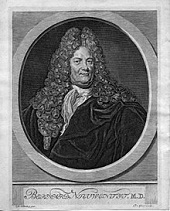
In 1802 Petersborough-born English Anglican clergyman William Paley (1743-1805) pub. Natural Theology, or Evidences of the Existence and Attributes of the Deity, based on The Religious Philosopher: or, The Right Use of the Contemplation of the World, for the Conviction of Atheists and Infidels (2 vols.) (1715), by Dutch theologian Bernard Nieuwentyt (Nieuwentijdt) (Nieuwentjit) (1654-1718), introducing the watchmaker analogy of God.


In 1807 Stuttgart, Germany-born Idealist philosopher ("the Protestant Aquinas" - Karl Barth) Georg Wilhelm Friedrich Hegel (1770-1831) pub. The Phenomenology of Spirit (Mind) (Phanomenologie des Geistes), his first major work, which gets him a job as dir. of the gymnasium of Nuremberg in 1808-16; it proposes the Thesis-Antithesis-Synthesis dialectic according to which knowledge pushes forwards to greater certainty, and ultimately towards knowledge of the noumenal world, making fans of Marx, Nietzsche et al. In 1812 he begins pub. The Science of Logic (Wissenschaft der Logic) (Die Objektive Logik) (3 vols.) (1812, 1813, 1816); rev. 1831; how history is a progressive process from Pure Being (China) to the Absolute Idea (Prussia) (pure thought thinking about pure thought), based on the dialectic (thesis + antithesis = synthesis); "This unity is consequently the absolute and all truth, the Idea which thinks itself"; "The power of the Spirit is only as great as its expression, its depth only as deep as it dares to spread out and lose itself in its exposition"; "The history of the world is the discipline of the uncontrolled natural will, bringing it into obedience to a universal principle and conferring subjective freedom. The East knew, and to the present day knows, that 'one' is free; the Greek and Roman world, that 'some' are free; the German world knows that 'all' are free", therefore America is the land of the future, and the Absolute will reveal itself one day, perhaps in a contest between North and South America", with war being necessary, along with class structures and the state; his 1811 marriage makes him get serious, and this work gets him a job as prof. of philosophy at the U. of Heidelberg in 1816, followed by prof. of philosophy at the U. of Berlin in 1818-31. In 1816 he pub. Encyclopedia of the Philosophical Sciences; rev. ed. pub. in 1827, 1830. In 1820 he pub. Grundlinien der Philosophie des Rechts (Elements of the Philosophy of Right), which claims that a person is not really free unless he participates in the life of the state, dissing Jakob Friedrich Fries (1773-1843) for participating in student agitation and the Burschenschaft and for being emotional instead of rational, causing Fries to diss him for defending the govt. order to keep his privileged position, with the soundbyte: "Hegel's metaphysical mushroom has grown not in the gardens of science but on the dunghill of servility" - 50 is the new 30?
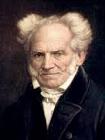

In Dec. 1818 Danzig-born German philosopher Arthur Schopenhauer (1788-1860) (known for his Bozo-style haircut) pub. his magnus opus The World as Will and Representation (Idea) (Die Welt als Wille und Vorstellung) (2nd ed. 1844), which claims that the world is driven by a continually-dissatisfied will that is ever seeking satisfaction; "The truth was recognized by the sages of India"; the pull of "transcendental ideality" turns him into an atheist; calls the genital organs the focus of the will - he was thinking with his dick and driven by his balls?


I'll buy that for a buck, yuk yuk? On Sept. 22, 1827 everhard 22-y.-o. Sharon, Vt.-born blonde Elvis lookalike Joseph Smith Jr. (1805-44) (known for being "a great babbler, credulous, not especially industrious, a money digger, prone to the miraculous and withal a little given to difficulties with neighbors and petty law suits", plus a "glass-looker", which gets him into criminal trouble), who goes on treasure hunts around the area allegedly digs up ding-dong magic golden plates (8 in. x 6 in. x 6 in. = 200 lb.?) inscribed with "Reformed Egyptian Text" near his farm in Palmyra in W N.Y., after his 1819 First Vision, followed by an 1823 appearance of angel Moroni, who, having a pipeline to God had told him the true history of the American continent, how it was first colonized by the Lost Tribes of the Jews, then visited by fictional Bible figures incl. Jesus Christ, who gave them the true religion, after which there was a dreadful apostasy, causing their skin to darken as punishment (creating the Indians), and how now that his pure whiteness has arrived, he will become head of the one true, new, and improved church and get all the worshipful, adoring white poontang he can shake his fork at as compensation, making everybody look like snack-and-seal Elvis?; of course, he has to endure a get-the-odors-out 4-year college-free worthiness quest before being permitted to graduate into the big leagues of come-hungry-leave-happy prophetdom?; on Dec. 12, 1912 the New York Times pub. the article Museum Walls Proclaim Fraud of Mormon Prophet, claiming that Joseph Smith couldn't really translate hierglyphics but just made translations up out of his imagination; "Within three months the only one of these sacred writings in which the test of scholarship could be applied has been submitted to such a test and its authenticity has been destroyed completely." In 2016 the Mormon Church releases the first photos of the magic stone allegedly used by Smith to translate the sacred text, a brown egg-sized rock - and it won't talk?

In 1841 Landshut, Bavaria-born German philosopher-anthropologist Ludwig Andreas von Feuerbach (1804-72) pub. his magnum opus The Essence of Christianity (Das Wesen des Christentums), which claims that religious faith is based on contradictions, and that its true essence is anthropological, and God is the outward projection of man's inward nature; Charles Darwin, Karl Marx, Friedrich Engels, Richard Wagner, Friedrich Nietzsche, and Sigmund Freud become fans.




In 1842 German Young Hegelian Friedrich Engels (1820-95) meets former Young Hegelian, German Jewish know-it-all Karl Marx (1818-83) at the offices of the Rheinische Zeitung in Manchester, England, but they are not impressed with each other; Engels hooks up in Manchester with Irish working class radical Mary Burns (1821-63), shacking up with her without doing that old-fashioned marriage thang, making enough money to support Marx, who next June 19 marries childhood friend, Prussian aristocrat Baroness Johanna Bertha Julie Jenny Freiin von Westphalen (1814-81) (after Marx dedicated his doctoral thesis to her liberal father Ludwig von Westphalen); they go on to have seven children, only three of whom survive to adulthood, Jenny, Laura, and Eleanor. On Aug. 28, 1844 after sending his first economic work "Outline of a Critique of Political Economy" to be pub. by Marx, Friedrich Engels meets Karl Marx again at the Cafe de la Regence in Paris, and this time they become close pals. In 1845 Engels pub. The Condition of the Working Class in England in Leipzig, written in Manchester, England in Sept. 1844-Mar. 1845, where he witnessed "the most unconcealed pinnacle of social misery in our day" incl. child labor and degrading working conditions, making a fan of Karl Marx. In 1845 German writer Wilhelm Weitling (1808-71) pub. Der Evangelium eines Armen Sunders (The Poor Sinner's Gospel), which traces Communism to 1st cent. Christianity, impressing Karl Marx. On Feb. 1, 1848 London Tribune reporter (managing ed. Richard Henry Dana Jr. - a coincidence? Did he mention his California days?) Karl Marx (1818-83) and Friedrich Engels (1820-95) pub. The Manifesto of the Communist Party in London as a broadside for the coming revolutions, containing the immortal soundbyte: "When, in the course of development, class distinctions have disappeared, and all production has been concentrated in the hands of a vast association of the whole nation, the public power will lose its political character. Political power, properly so called, is merely the organized power of one class for oppressing another. If the proletariat during its contest with the bourgeoisie is compelled, by the force of circumstances, to organize itself as a class, if, by means of a revolution, it makes itself the ruling class, and, as such, sweeps away by force the old conditions of production, then it will, along with these conditions, have swept away the conditions for the existence of class antagonisms and of classes generally, and will thereby have abolished its own supremacy as a class"; "A specter is haunting Europe, the specter of Communism"; "Those of its members who work, acquire nothing, and those who acquire anything, do not work"; when the little revvies all fizzle the document is repub. as The Communist Manifesto 20 years later, and those who think that socialism can be implemented bloodlessly are labelled as "utopian socialists"; of course the new Communist movement is militantly atheistic and anti-clerical. "Religious suffering is, at one and the same time, the expression of real suffering and a protest against real suffering. Religion is the sigh of the oppressed creature, the heart of a heartless world, and the soul of soulless conditions. It is the opium of the people." - Karl Marx, Critique of Hegel's Philosophy of Right, Intro. (1843)

On Feb. 20, 1843 excited by the new science of psychology, Copenhagen, Denmark-born hunchback philosopher Soren (Søren) Aabye Kierkegaard (1813-55) pub. Either/Or: A Life Fragment (Enten - Eller) under the alias Victor Eremita (Victorious Hermit), about how consciousness progresses from a hedonistic aesthetic mode to a mature conscience characterized by ethical imperatives; On Oct. 16, 1843 he pub. Fear and Trembling (Begrebet Angst) under the alias Johannes de Silentio, contrasting Abraham's sacrifice of his son Isaac with Agamemnon's sacrifice of his daughter Iphigenia; title refers to Philippians 2:12 and Psalms 55:5; incl. The Knight of Faith, about the cool individual who places complete faith in himself and in God, contrasted with the knight of infinite resignation; rocks the Danish Lutheran church with its rejection of Hegelianism and anticipation of Existentialism, which dumps Idealism for the concrete reality of a "single individual"; written right after finding out that his babe Regine Olsen has said yes to his rival Johan Frederik Schlegel, causing him to turn to Lady Five Fingers with fear and trembling, while hoping that God will return her to him?; he also pub. Repetition: A Venture in Experimental Psychology; pub. under alias Constantin Constantius; the Young Man jilts his betrothed, like Kierkegaard did his babe Regine Olsen. In 1844 he pub. Philosophical Fragments pub. under the alias Johannes Climacus, about the Socratic vs. the religious methods of arriving at Truth. On June 17, 1844 he pub. The Concept of Anxiety (Dread) under the alias Vigilius Haufniensis (Watchman of Copenhagen), the first treatment of anxiety, the experience of looking over an edge and having an impulse to throw oneself over it, "the dizziness of freedom", which precedes sin as with Adam and Eve and the apple; "Consciousness presupposes itself". On Aug. 31, 1844 he pub. Four Upbuilding Discourses, about the resolution made by a single individual, leading to the leap of faith. In 1846 he pub. Concluding Unscientific Postscript to The Philosophical Fragments, a bitter attack against Hegelianism and its determinism, taking the side of free will or metaphysical libertarianism; "Subjectivity is truth". In 1849 he pub. The Sickness Unto Death under the alias Anti-Climacus, treating despair, which he equates with original sin.
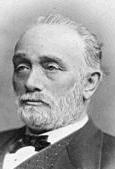
In 1855 Darmstadt, Hesse-born German philosopher Friedrich Karl Christian Ludwig Buchner (Büchner) (1824-99) pub. his magnum opus Kraft und Stoff: Empirisch-naturphilosophische Studien (Force and Matter: Empiricophilosophical Studies), which attempts to prove the indestructibility of matter and the finality of physical force; too bad, its extreme materialism pisses-off critics so much that he has to resign from his position at the U. of Tubingen, becoming a physician and founding the German Freethinkers League in Frankfurt in 1881.


The Book That Shook the World? Big year for Bible skeptics, secularists, atheistic scientists, anybody against the ancien regime, as Jehovah, the Source of Life Breathed Into Mud is challenged by Godless Evolution, Mud Coming to Life by Itself After It Bubbles Long Enough? The biggest V for the Devil since Eden? The new 95 Theses, but Darwin is smart enough not to publish it on Halloween? On Nov. 24, 1859 (Thur.) English naturalist Charles Robert Darwin (1809-82) pub. On the Origin of Species By Means of Natural Selection, Or, The Preservation of Favoured Races in the Struggle for Life; the 1st ed. sells out in 1 day; the 1872 6th ed. shortens the title to "The Origin of Species"; the decider, which causes evolutionary "survival of the fittest" theory to triumph among the intelligentsia; English Anglican minister and Cambridge U. prof. of modern history Charles Kingsley (1819-75), who received an advance copy on Nov. 18 writes that he had "long since, from watching the crossing of domesticated animals and plants, learnt to disbelieve the dogma of the permanence of the species", which Darwin adds to the next ed. of his book in a modified form: "He had gradually learned to see that it is just as noble a conception of the Deity to believe that He created a few original forms capable of self-development into other and needful forms, as to believe that He required a fresh act of creation to supply the voids caused by the action of His laws"; Darwin pub. it after spending eight years dissecting barnacles in his basement, then inexplicably switching to the Galapagos finch?; catches on first in Germany among atheists?; "If it could be demonstrated that any complex organ existed, which could not possibly have been formed by numerous, successive, slight modifications, my theory would absolutely break down"; Louis Agassiz of the U.S. opposes Darwin, preferring a theory of "Epochs of Creation", based on the absence of missing links between layers of well-formed fossil ecosystems; the phrase "I'll be a monkey's uncle" is coined by Darwin skeptics; "There is a grandeur in this view of life that, whilst this planet has gone cycling on according to the fixed law of gravity, from so simple a beginning endless forms most beautiful and most wonderful have been, and are being, evolved"; what was that about "my theory would absolutely break down" if anything is found that can't be explained by "numerous, successive, slight modifications"?; in practice Darwinism becomes a religion which denies that there is intelligent design in Nature, and therefore tries to deconstruct any evidence of it they find as they go along, yet clings to the notion of common descent, almost as if there was some original, er, accident, and ends up turning into a narrow naturalistic dogma by the end of the 20th cent., taking over U.S. and other Western educational systems with a chilling priesthood? In 1860 after failing to fit it into his Theory of Evolution, Darwin writes the immortal soundbyte: "The sight of a feather in a peacock's tail makes me sick." On Feb. 1, 1871 he writes a Letter to Sir Joseph Dalton Hooker, with the soundbyte: "It is often said that all the conditions for the first production of a living organism are now present, which could ever have been present. But if (and oh! what a big if!) we could conceive in some warm little pond, with all sorts of ammonia and phosphoric salts, light, heat, electricity, &c., present, that a protein compound was chemically formed ready to undergo still more complex changes, at the present day such matter would be instantly absorbed, which would not have been the case before living creatures were found." On Feb. 24, 1871 he pub. The Descent of Man, and Selection in Relation to Sex, which applies his theory of evolution to humans; "The Simidae then branched off into two great stems, the New World and the Old World monkeys; and from the latter at a remote period, Man, the wonder and glory of the universe, proceeded"; "We civilized men... do our utmost to check the process of elimination; we build asylums for the imbecile, the maimed, and the sick; we institute poor laws; and our medical men exert their utmost skill to save the life of everyone to the last moment... Thus the weak members of civilized societies propagate their kind. No one who has attended to the breeding of domestic animals will doubt that this must be highly injurious to the race of man. It is surprising how soon a want of care, or care wrongly directed, leads to the degeneration of a domestic race; but excepting in the case of man himself, hardly anyone is so ignorant as to allow his worst animals to breed"; attempts to scientifically establish white racial supremacy, with the soundbytes: "Western nations of Europe immeasurably surpass their former savage progenitors and stand at the summit of civilization"; "American aborigines, Negroes, and Europeans differ as much from each other in mind as any three races that can be named"; "Looking to future generations, there is no cause to fear that the social instincts will grow weaker, and we may expect that virtuous habits will grow stronger, becoming perhaps fixed by inheritance... [so that] virtue will be triumphant"; "It is the most closely allied forms... which, from having nearly the same structure, constitution, and habits, generally come into the severest competition with each other; consequently, each new variety of species, during the progress of its formation, will generally press hardest on its nearest kindred, and tend to exterminate them"; "This is the book that contains the foundation in natural history for our view" (Marx to Engels); this book is later used by Eugenicists to justify euthanasia of misfits, using soundbytes incl. "We civilized men... do our utmost to check the process of elimination; we build asylums for the imbecile, the maimed, and the sick; we institute poor laws; and our medical men exert their utmost skill to save the life of everyone to the last moment... Thus the weak members of civilized societies propagate their kind. No one who has attended to the breeding of domestic animals will doubt that this must be highly injurious to the race of man. It is surprising how soon a want of care, or care wrongly directed, leads to the degeneration of a domestic race; but excepting in the case of man himself, hardly anyone is so ignorant as to allow his worst animals to breed.... All do good service who aid toward this end."

In 1865 Lutzen, Saxony, Prussia-born German theology student Friedrich Wilhelm Nietzsche (1844-1900 suddenly quits and gives up his faith, writing to his sister Elisabeth the soundbyte: "Hence the ways of men part: if you wish to strive for peace of soul and pleasure, then believe; if you wish to be a devotee of truth, then inquire", going on to study philology and philosophy and soon discovering atheist philosopher Arthur Schopenhauer's "The World as Will and Representation", Friedrich Albert Lange's "History of Materialism", and Charles Darwin's "The Origin of Species", getting an appointment as the youngest prof. of classical philology at the U. of Basel in 1869 at age 24, later reaching the pinnacle of philosophy and calling himself the Antichrist before becoming a partial invalid in 1874, becoming an opium addict, then collapsing in 1889 and becoming demented for the rest of his life. In 1882 he pub. The Joyful (Gay) Science (Die Frohliche Wissenschaft), which introduces the Death of God, Eternal Recurrence (Return), and the Ubermensch (Übermensch) (Superman) (Overman). In 1883-5 he pub. the novel Thus Spake Zarathustra: A Book for All and for None (Also Sprach Zarathustra), which expands on the ideas of the Eternal Recurrence, Death of God, the Ubermensch (Übermensch) (Superman), and the Will to Power, promoting the idea that one value system is no more worthy then the next, with the aphorism "On the Thousand and One Goals": "A thousand goals have there been so far, for there are a thousand peoples. Only the yoke for the thousand necks is still lacking: the one goal is lacking. Humanity still has no goal." In 1886 he pub. Beyond Good and Evil: Prelude to a Philosophy of the Future (Jenseits von Gut and Bose: Vorspiel einer Philosophie der Zukunft), which argues that the evil man isn't the opposite of the good man, but a different expression of the same basic impulses. In 1889 he pub. Twilight of the Gods (Idols); or, How to Philosophize with a Hammer (Gotzendammerung) (Götzendämmerung), which disses modern German culture as suffering from "cultural decadence", pointing to Caesar, Napoleon, Goethe, Thucydides, and the Sophists as the way to go, promoting the Transvaluation (Revaluation) of All Values, touting the ancient Romans as superior to the ancient Greeks. In 1895 he pub. The Antichrist, about how Christianity teaches a "slave morality", and holds back the yah-baby dream-is-back Superman and his Will to Power (Der Wille zur Macht); "Not contentment, but more power; not peace at all, but war"; "The real philosophers are commanders and lawgivers; they say: 'Thus shall it be!' They determine first the Whither and the Why of mankind, and thereby set aside the previous labor of all philosophical workers...; they grasp at the future with a creative hand, and whatever is and was, becomes for them thereby a means, an instrument, and a hammer. Their 'knowing' is creating, their creating is a lawgiving, their will to truth is Will to Power." On Jan. 3, 1889 so-called "Superman" German philosopher Friedrich Nietzsche (b. 1844) freaks at the flogging of a horse in the Piazza Carlo Alberto in Turin, Italy, and suffers a mental breakdown, moving in with his mother near Weimar, and is cared for by his sister until he crocks on Aug. 25, 1900 in Weimar, Saxony, leaving Ecce Homo: How One Becomes What One Is (pub. in 1908) (signed "Dionysus versus the Crucified").
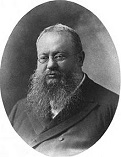
In 1871 Hartford, Conn.-born philosopher-historian John Fiske (1842-1901) (big believer in evolution) pub. The Progress from Brute to Man, folowed by Outlines of Cosmic Philosophy (3 vols.) (1874), which claims that "in reality there has never been any conflict between religion and science, nor is any reconciliation called for where harmony has always existed", adding: "We arrive at a deeper reason than has hitherto been disclosed for the difference between our position with reference to Christianity, and that which has been assumed by Radicalism and by Positivism. It is not merely that we refuse to attack Christianity because we recognize its necessary adaptation to a certain stage of culture, not yet passed by the average minds of the community; it is that we still regard Christianity as, in the deepest sense, our own religion"; The Unseen World and Other Essays (1876), Darwinism and Other Essays(1879) (rev. ed. pub. 1885), Excursions of an Evolutionist (1883), The Destiny of Man Viewed in the Light of His Origin (1884), The Idea of God as Affected by Modern Knowledge (1885), Origin of Evil (1899), and Through Nature to God (1899), denying any enmity between science and religion because God is immanent everywhere.


Science + fiction + religion = the key to what's in your wallet? In 1875 Bow, N.H.-born Mary Baker Glover Eddy (1821-1910), student of Phineas Quimby pub. Science and Health with Key to the Scriptures. In 1898 she founds the Christian Science Pub. Society in Boston, Mass. as the pub. arm of the First Church of Christ, Scientist. In 1907 Am. humorist Mark Twain (Samuel Langhorne Clemens) (1835-1910) pub. Christian Science, dedicated to Mary Baker Eddy, "queen of frauds and hypocrites", who claims that pain, sickness and death don't exist, causing Eddy to found her own pub., the Christian Science Monitor in 1908. "Nothing is real and eternal, - nothing is Spirit, - but God and His idea. Evil has no reality. It is neither person, place, nor thing, but is simply a belief, an illusion of material sense"; "Human philosophy has made God manlike. Christian Science makes man Godlike. The first is error; the latter is truth. Metaphysics is above physics, and matter does not enter into metaphysical premises or conclusions. The categories of metaphysics rest on one basis, the divine Mind"; "Since God is All, there is no room for His unlikeness. God, Spirit, alone created all, and called it good. Therefore evil, being contrary to good, is unreal, and cannot be the product of God"; The word Adam is from the Hebrew adamah, the red color of the ground... Divide the name into two syllables, and it reads, a dam, or obstruction... a dam is not a mere play upon words; it stands for obstruction, error, even the supposed separation of man from God, and the obstacle which the serpent, sin, would impose between man and his creator"; "The floral apostles are hieroglyphs of Diety"; "For twelve years... I had been under the care of a physician much of the time... I was healed through reading... Mrs. Eddy. It was a clear case of transformation of the body by the renewal of the mind" (J.M.H., Omaha, Neb.) - all is Mind, except money, that's figures in my bank statement?
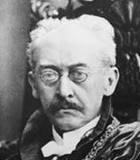
In 1886 Dorpat, Livonia (Tartu, Estonia)-born liberal German Lutheran theologian Carl Gustav Adolf von Harnack (1851-1930) begins pub. History of Dogma (Lehrbuch der Dogmengeschichte) (7 vols.) (1886-98), espousing a liberal German view of the Gospels, claiming that from the start Christian faith was intermingled with Greek philosophy, thus Protestants are bound to criticize it. In 1893 he pub. History of Early Christian Lit. down to Eusebius of Caesaria (Geschichte der altkirchlichen Literatur bis Eusebius). In 1902 he pub. The Mission and Expansion of Christianity in the First Three Centuries (Die Mission und Ausbreitung des Christentums in den ersten drei Jahrhunderten) (3 vols.). In 1906 he pub. Contributions to the Introduction to the New Testament (Beitrage zur Einleitung in das neue Testament). In 1907 he pub. Luke the Physician. In 1908 he pub. The Sayings of Jesus. He goes on to reject the Gospel of John as unhistorical, and diss Old Testament miracles while leaving a door open to New Testament healing miracles, with the soundbyte: "That the earth in its course stood still; that a she-ass spoke; that a storm was quieted by a word, we do not believe, and we shall never again believe; but that the lame walked, the blind saw, and the deaf heard will not be so summarily dismissed as an illusion." On Oct. 4, 1914 the Manifesto of the Ninety-Three (To the Civilized World) is issued by 93 German intellectuals incl. Wilhelm Roentgen and Max Reinhardt, countering reports of German atrocities in the Rape of Belgium with the soundbyte: "We shall wage this fight to the very end as a civilized nation, a nation that holds the legacy of Goethe, Beethoven, and Kant no less sacred than hearth and home", galvanizing German support for the war in schools and univs. while pissing-off foreign intellectuals incl. German Lutheran theologian Adolf von Harnack's student Karl Barth, causing him to ditch German liberal theology, and causing Germany's critics to began lambasting German "Kultur" as tantamount to the Huns; next year German pacifist physician Georg Friedrich Nicolai (Lewinstein) (1874-1964) pub. Manifesto to Europeans, calling for European intellectuals to unite Europe after the war, with the soundbytes: "Never before has any war so completely disrupted cultural cooperation. It has done so at the very time when progress in technology and communications clearly suggest that we recognize the need for international relations which will necessarily move in the direction of a universal, worldwide civilization"; "The first step in this direction would be for all those who truly cherish the culture of Europe to join forces, all those whom Goethe once prophetically called 'good Europeans'. We must not abandon hope that their voice speaking in unison may even today rise above the clash of arms, particularly if they are joined by those who already enjoy renown and authority"; signed by fellow U. of Berlin faculty Otto Buek, Wilhelm Julius Forster, and Albert Einstein, becoming his first foray into politics; on Nov. 25 Kaiser Wilhelm II writes a letter to British-born white supremacist Houston Stewart Chamberlain in Berlin, with the soundbyte: "It is my unspeakable conviction that the country to which God gave Luther, Goethe, Bach, Wagner, Moltke, Bismarck, and my grandfather will yet be called upon to fulfill great tasks for the benefit of mankind."



In 1905 Monmouthshire, England-born philosopher-logician Bertrand Arthur William Russell (1872-1970) pub. On Denoting in Mind, which introduces definite and indefinite descriptions, and formulates descriptivism for proper names, reducing them to disguised and abbreviated definite descriptions, causing Frank P. Ramsey to call it "that paradigm of philosophy", and Peter Ludlow to call it "the paradigm of philosophy". In 1910-13 he and Ramsgate, Kent-born philosopher-mathematician Alfred North Whitehead (1861-1947) pub. Principia Mathematica (3 vols.), which attempts to reduce arithmetic to logic, founding the calculus of propositions and modern symbolic logic, becoming king locomotive of the county until Godel's Theorem derails them? In 1912 Russell pub. The Problems of Philosophy. In 1914 he pub. Our Knowledge of the External World as a Field for Scientific Method in Philosophy. In 1927 he pub. Why I Am Not a Christian, dooming Britain to mass apostasy by the end of the cent.? In 1945 he pub. A History of Western Philosophy and Its Connection with Political and Social Circumstances from Earliest Times to the Present Day, which becomes a big hit, fixing him financially for life and helping him win the 1950 Nobel Lit. Prize despite being dissed by several historians, who accuse of him of rushing it to press to make money; "A precious book... a work that is in the highest degree pedagogical which stands above the conflicts of parties and opinions" (Albert Einstein); "[It] confers on philosophers who are dead and gone a kind of false contemporaneity which may make them seem important to the uninitiate. But nevertheless it is a misreading of history" (George Boas); "I regarded the early part of my History of Western Philosophy as a history of culture, but in the later parts, where science becomes important, it is more difficult to fit into this framework. I did my best, but I am not at all sure that I succeeded. I was sometimes accused by reviewers of writing not a true history but a biased account of the events that I arbitrarily chose to write of. But to my mind, a man without bias cannot write interesting history - if, indeed, such a man exists." (Russell) In 1948 he pub. Human Knowledge: Its Scope and Limits; "Language is a means of externalizing and publicizing our own experiences. A dog cannot relate his autobiography; however eloquently he may bark, he cannot tell you that his parents were honest but poor." He goes on to found Analytic Philosophy, which emphasizes modern formal logic and rejects grand sweeping philosophical systems in favor of well-analyzed bits and pieces. One day Beatle Paul McCartney visits him at his flat in London, and is lectured on anti-war activism, the news causing fellow Beatle John Lennon to get into it? On Feb. 2, 1972 pipe-smoking Russell (b. 1872) dies in Plas Penrhyn, Penrhyndeudraeth, Wales of influenza after pub. 50+ books and winning the 1950 Nobel Lit. Prize; "It is undesirable to believe a proposition when there is no ground whatever for supposing it true"; "Men are born ignorant, not stupid. They are made stupid by education"; "Advocates of capitalism are very apt to appeal to the sacred principles of liberty, which are embodied in one maxim: The fortunate must not be restrained in the exercise of tyranny over the unfortunate"; "A process which led from the amoeba to man appeared to the philosophers to be obviously a progress though whether the amoeba would agree with this opinion is not known"; "War doesn't determine who's right, only who's left"; "If fifty million people say a foolish thing, it is still a foolish thing"; "Three passions, simple but overwhelmingly strong, have governed my life: The longing for love, the search for knowledge, and unbearable pity for the suffering of mankind"; "The time you enjoy wasting is not wasted time"; "On the one hand, philosophy is to keep us thinking about things that we may come to know, and on the other hand to keep us modestly aware of how much that seems like knowledge isn't knowledge"; "Religion is something left over from the infancy of our intelligence. It will fade away as we adopt reason and science as our guidelines"; "I resolved from the beginning of my quest that I would not be misled by sentiment and desire into beliefs for which there was no good evidence"; "Unless you assume a God, the question of life's purpose is meaningless"; "Many people would sooner die than think; in fact, they do so"; "If a man is offered a fact which goes against his instincts, he will scrutinize it closely, and unless the evidence is overwhelming, he will refuse to believe it. If, on the other hand, he is offered something which affords a reason for acting in accordance to his instinct, he will accept it even on the slightest evidence. The origin of myths is explained in this way"; "Liberty is the right to do what I like; license, the right to do what you like"; "The secret to happiness is to face the fact that the world is horrible"; "To understand the actual world as it is, not as we should wish it to be, is the beginning of wisdom"; "There is something feeble and a little contemptible about a man who cannot face the perils of life without the help of comfortable myths"; "A happy life must be to a great extent a quiet life, for it is only in an atmosphere of quiet that true joy dare live"; "To fear love is to fear life, and those who fear life are already three parts dead"; "The whole problem with the world is that fools and fanatics are always so certain of themselves and wiser people so full of doubts"; "It is not what the man of science believes that distinguishes him, but how and why he believes it. His beliefs are tentative, not dogmatic; they are based on evidence, not on authority or intuition"; "Man is the product of causes which had no prevision of the end they were achieving... his origin, growth, hopes and fears, his loves and beliefs, are but the outcome of accidental collocations of atoms... no fire, heroism, intensity of thought and feeling can preserve an individual life beyond the grave. All the labours of the ages, the devotion, the inspiration, the noonday brightness of human genius, are destined to extinction in the vast death of our solar system, and the temple of man's achievement must inevitably be buried beneath the debris of a universe in ruins."

In 1912 Moravian-born Jewish Austrian psychoanalysis founder Sigmund (Sigismund Schlomo) Freud (1856-1939) pub. Totem and Taboo: Resemblances Between (Points of Agreement between) the Mental Lives of Savages and Neurotics, which proposes that society and religion begin with the sacrifice and ritual cannibalism of the powerful paternal figure, who then becomes a revered collective memory; thus religion belongs to the infancy of the human race, and was a necessary stage in the transition from childhood to maturity, and belief in God is an illusion that mature adults should discard in place of Science, the new logos; "[This] conviction I acquired when I wrote my book on Totem and Taboo (1912), and it has only become stronger since. From then on, I have never doubted that religious phenomena are to be understood only on the model of the neurotic symptoms of the individual, which are so familiar to us, as a return of long forgotten important happenings in the primeval history of the human family, that they owe their obsessive character to that very origin and therefore derive their effect on mankind from the historical truth that they contain"; "No, our science is not an illusion! An illusion it would be to suppose that what science cannot give we can get elsewhere". In 1927 he pub. The Future of an Illusion, which argues that religious belief serves the function of psychological consolation, and that belief in a supernatural protector serves as a buffer from man's fear of Nature the same way that belief in an afterlife serves as a buffer from man's fear of death; all religious belief can be explained through its function to society, not for its relation to the truth, making religious beliefs into "illusions"; reduces religion to the size of a peanut, mere "fulfillments of the oldest, strongest, and most urgent wishes of mankind"; "What is characteristic of illusions is that they are derived from human wishes", although "illusions need not necessarily be false". In 1938 he pub. Moses and Monotheism (English tr. 1939), claiming that Moses was not a Hebrew but an Egyptian Akhenaten worshipper, who became a tribal pater familias and was murdered by his followers, who became guilt-ridden and adopted the Midianite volcano god Jehovah (Yahweh), which is the source of modern Jewish neuroses.

In 1921 Basel-born liberal Swiss Reformed theologian ("the Red Pastor from Safenwil") Karl Barth (1886-1968) pub. his masterpiece The Epistle to the Romans (Romans II) (Der Römerbrief), breaking with the German liberalism that fed German nationalism, claiming that the God who is revealed in the cross of Jesus challenges and overthrows any attempt at allying God with human causes incl. culture, achievement, or posessions, making him a star. In 1934 he pub. the Theological Declaration of Barmen, taking a public stand against the Nazi attempt to subordinate the German Protestant church, representing the dissident Confessing Church (Bekennende Kirche), that saw 700 of 3K pastors arrested by Jan. 1933. He leaves the unfinished magnum opus Church Dogmatics (12 vols.) (1932-67), becoming "the greatest theologian since Thomas Aquinas" (Pope Pius XII).

In 1923 Vienna, Austria-born Jewish existentialist philosopher Martin (Mordechai) Buber (1878-1965) (relative of Karl Marx) pub. I and Thou (Ich und Du); tr. into English in 1937; the Jewish conception of God as "Thou" not "It" sans the Catholic Trinity and that you-know-what from Nazareth?; "One who truly meets the world goes out also to God."

In 1927 Baden, Germany-born existentialist philosopher Martin Heidegger (1889-1976) pub. Being and Time (Sein und Zeit), dedicated to Edmund Husserl, which attempts to understand being itself as distinguished from specific beings and the sense of being (Sinn des Seins), concluding that the being for whom Being is a question is not a what but a who, Dasein (being-there).

In 1938 Paris-born French existentialist atheist Marxist philosopher (blind in right eye) Jean-Paul Charles Aymard Sartre (1905-80) pub. the novel Nausea, a manifesto of existentialism, about dejected researcher Roquentin, living in a town similar to Le Havre, who discovers that inanimate objects and situations are absolutely indifferent to his existence, while everyday life is infused with the horrible taste of his own freedom, causing him to be "condemned to be free"; gets him the 1964 Nobel Lit. Prize, which he declines. In 1943 he pub. Being and Nothingness: An Essay on Phenomenological Ontology (A Phenomenological Essay on Ontology) (L'Être et le Néant), his response to Martin Heidegger's 1927 "Being and Time", claiming that since there is no creator, man's existence is prior to his essence, causing him to be haunted by a vision of "completion" (a being that causes itself) (ens causa sui), which is mistaken for God, and which he tries to satisfy with his free will. In 1957 he pub. Search for a Method (The Problem of Method), which attempts to reconcile existentialism with Marxism.




On Sept. 1, 1939 - Sept. 2, 1945 the horrific $3.5T World War II results in 24M military and 49M civilian deaths, and features the low point of the Jewish Holocaust (Shoah) by the German Nazis - I guess it was the Jews' fault for not ransoming themselves to go to Israel before they could round them up for the camps? The whole experience turns Jews from lovers into fighters, ramping up the Zionist movement with full world sympathy and support by new world superpower U.S., which has its own guilt trip because on Nov. 24, 1942 Budapest-born Am. Zionist leader Rabbi Stephen Samuel Wise (1874-1949) announces in a press conference in Washington, D.C. that he was authorized by the U.S. State Dept. to confirm that the Nazis had murdered 2M Jews as part of a plan to exterminate all Jews in Europe; too bad, the nat. newspapers don't consider it front page news, and the U.S. govt. does nada. After the war ends and Americans tour the concentration camps in horror, Polish-born Jewish scholar Raphael Lemkin (1900-59), who single-handedly led an unsuccessful campaign to get the League of Nations to give internat. protections against genocide starting in 1933 finally gets what he wanted after his own people got it, namely the Dec. 9, 1948 U.N. Convention on the Prevention and Punishment of the Crime of Genocide (Gen. Assembly Resolution 260), which doesn't come in force until Jan. 12, 1951, and which the U.S. still doesn't ratify until 1988. In 1966 New York City-born Jewish rabbi Richard Lowell Rubeinstein (1924-) pub. After Auschwitz: Radical Theology and Contemporary Judaism, complaining that the Holocaust destroyed the traditional Jewish concept of God and his covenant with Abraham, causing Jews to need to junk the concept of an omnipotent God of history and the election of Israel as the chosen people, but not go atheist, instead cling to God as the ground of being, perhaps reverting to paganism; "As children of the Earth, we are undeceived concerning our destiny. We have lost all hope, consolation and illusion"; "Terms like 'ground" and 'source' stand in contrast to the terms used for the transcendent biblical God of history who is known as a supreme king, a father, a creator, a judge, a maker. When he creates the world, he does so as do males, producing something external to himself. He remains essentially outside of and judges the creative processes he has initiated. As ground and source, God creates as does a mother, in and through her own very substance. As ground of being, God participates in all the joys and sorrows of the drama of creation which is, at the same time, the deepest expression of the divine life. God's unchanging unitary life and that of the cosmos' ever-changing, dynamic multiplicity ultimately reflect a single unitary reality."

In 1949 crusading atheist freethinker James Hervey Johnson (1901-83) of San Diego, Calif. pub. Superior Men, claiming that freethinking people who reject religion as mental garbage are guess what?; chapters incl. "The Evidence for the Existence of God is Worse Than Flimsy", "Science Disproves Biblical Stories", "Religious Customs Are Stupid", "Prayers Are Worthless", "Christ Healed Fewer Persons (if any) than the Average Doctor", and "Churches Should Pay Taxes"; self-pub. by a high school dropout who got rich on San Diego real estate, and in 1964 becomes ed. of The Truth Seeker mag. (founded 1873).

In 1951 Brandenburg, Prussia-born Am. Lutheran theologian Paul Johannes Tillich (1886-1965) begin pub. his magnum opus Systematic Theology (3 vols.) (1951-63), which presents his Method of Correlation to use the symbols of Christian revelation to answer problems of human existence raised by existential philosophical analysis, with the soundbytes: "Theology formulates the questions implied in human existence, and theology formulates the answers implied in divine self-manifestation under the guidance of the questions implied in human existence. This is a circle which drives man to a point where question and answer are not separated. This point, however, is not a moment in time"; "The Christian message provides the answers to the questions implied in human existence. These answers are contained in the revelatory events on which Christianity is based and are taken by systematic theology from the sources, through the medium, under the norm. Their content cannot be derived from questions that would come from an analysis of human existence. They are 'spoken' to human existence from beyond it, in a sense. Otherwise, they would not be answers, for the question is human existence itself." In 1952 he pub. The Courage to Be, introducing his ideas to the public; "Sociological analysis of the present period have pointed to the importance of anxiety as a group phenomenon. Literature and art have made anxiety a main theme of their creations, in content as well as in style. The effect of this has been the awakening of at least the educated groups to an awareness of their own anxiety, and a permeation of the public consciousness by ideas and symbols of anxiety. Today it has become almost a truism to call our time an 'age of anxiety.' This holds equally for America and Europe..."; "I suggest that we distinguish three types of anxiety according to the three directions in which nonbeing threatens being. Nonbeing threatens man's ontic self-affirmation, relatively in terms of fate, absolutely in terms of death. It threatens man's spiritual self-affirmation, relatively in terms of emptiness, absolutely in terms of meaninglessness. It threatens man's moral self-affirmation, relatively in terms of guilt, absolutely in terms of condemnation. The awareness of this threefold threat is anxiety appearing in three forms, that of fate and death (briefly, the anxiety of death), that of emptiness and loss of meaning (briefly, the anxiety of meaninglessness), that of guilt and condemnation (briefly, the anxiety of condemnation). In all three forms anxiety is existential in the sense that it belongs to existence as such and not to an abnormal state of mind as in neurotic (and psychotic) anxiety"; "The anxiety of meaninglessness is anxiety about the loss of an ultimate concern, of a meaning which gives meaning to all meanings. This anxiety is aroused by the loss of a spiritual center, of an answer, however symbolic and indirect, to the question of the meaning of existence"; "The distinction of the three types of anxiety is supported by the history of Western civilization. We find that at the end of ancient civilization ontic anxiety is predominant, at the end of the Middle Ages moral anxiety, and at the end of the modern period spiritual anxiety. But in spite of the predominance of one type the others are also present and effective"; "The breakdown of absolutism, the development of liberalism and democracy, the rise of a technical civilization with its victory over all enemies and its own beginning disintegration-these are the sociological presupposition for the third main period of anxiety. In this the anxiety of emptiness and meaninglessness is dominant. We are under the threat of spiritual nonbeing." In 1957 he pub. Dynamics of Faith, further introducing his ideas to the gen. public. In 1964 he pub. Theology and Culture, which claims that the idea of a personal God is harmful and deserves to become kaput, with the soundbyte: "The concept of a 'Personal God' interfering with natural events, or being 'an independent cause of natural events,' makes God a natural object beside others, an object among others, a being among beings, maybe the highest, but nevertheless a being. This indeed is not only the destruction of the physical system but even more the destruction of any meaningful idea of God." He goes on to reject the God of "theological theism", i.e., "a being besides others and and as such a part of the whole reality", and substitute the ontological view of God as Ground of Being (Being itself) (Power of Being) (Abysmal Being) (Ultimate Concern), i.e., God is the ground upon which all beings exist, with the soundbyte: "In such a state the God of both religious and theological language disappears. But something remains, namely, the seriousness of that doubt in which meaning within meaninglessness is affirmed. The source of this affirmation of meaning within meaninglessness, of certitude within doubt, is not the God of traditional theism but the 'God above God,' the power of being, which works through those who have no name for it, not even the name God." "What Whitehead was to American philosophy, Tillich has been to American theology." (Georgia Harkness)

In 1955 French Jesuit philosopher Pierre Teilhard de Chardin (1881-1955) posth. pub. The Phenomenon of Man (Le Phenomene Humain), which was written in 1938, but withheld from pub. so he wouldn't have to leave the priesthood; it explains his concepts of the Omega Point (mental Second Coming) and the Law of Complexity/Consciousness; coins the term "Noosphere" (the biosphere of the mind); "Just as man, in the eyes of the paleontologist, merges anatomically into the mass of mammals who preceded him, so the cell, in the same descending series... merges into the world of chemical structure and visibly converges towards the molecule" - and the whole Universe merges into a marble that blew up? "Someday after mastering winds, waves, tides and gravity, we shall harness the energies of love, and then, for the second time in the history of the world, man will discover fire"; "Teilhard was one of the first scientists to realize that the human and the universe are inseparable. The only universe we know about is a universe that brought forth the human." (Brian Swimme)

On June 17, 1963 the U.S. Supreme (Warren) Court rules 8-1 in Abington School District v. Schempp to strike down rules requiring the recitation of the Lord's Prayer or reading of Biblical verses in public schools (along with similar laws in four other states, and optional Bible reading laws in 25 states; 11 states had their laws declared unconstitutional by state courts) after primary student Ellery (Ellory) Schempp (1940-) and his Unitarian Universalist father Edward Schempp (1908-2003) (Unitarian-Universalists) protested then sued the Abingdon Township School District in Penn. in 1956 to stop the obligatory reading of 10 verses of the Bible plus the Lord's Prayer on each school day; after founding American Atheists (originally Society of Separationists), Pittsburgh, Penn.-born Madalyn Murray O'Hair (1919-95) ("The most hated woman in America" - Life mag.) enters the spotlight in a parallel case, Murray v. Curlett, seeking to have obligatory Bible reading stopped in Baltimore, where her son William J. "Bill" Murray III (1946-) (who later becomes a Baptist minister) is enrolled; the two cases are combined, and Schempp's case is chosen as primary because Unitarians are a larger group than Atheists; Bible teaching is still okay as long as it is "taught objectively as part of a secular program", but fears of the ACLU plus growing illiteracy result in only 8% of U.S. public schools offering Bible courses by the end of the cent.; Charles Lee Smith, pres. of the Am. Assoc. for the Advancement of Atheism and ed. of The Truth Seeker mag. donates $5K to O'Hair, which backfires later when he dies and she tries to take it over until a judge stops her.
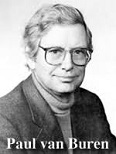
In 1963 Am. Episcopalian theologian Paul Matthews van Buren (1924-1998) pub. The Secular Meaning of the Gospel: Based on an Analysis of Its Language, agreeing with the Death of God theology (while denying that he's a member of the movement) and adding that because of modern science and techology ruling out the Old Man in the Sky it no longer possible to speak of God acting in the world, but must hold onto Jesus of Nazareth, "the man who defines what it means to be a man", "a free man who hs set other men free."
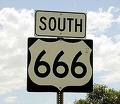


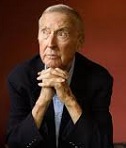



On Apr. 8, 1966 Time mag. seizes the chance to cash in on Millennium Fever by pub. an issue with the Easter ed. cover story Is God Dead? Toward a Hidden God; the cover features "Is God Dead" in big devil-red letters on a Hell-black background; the issue is really about the views of Am. radical Christian theologian Thomas Jonathan Jackson "J.J." Altizer (1927-2018) in his new book The Gospel of Christian Atheism, which combines Friedrich Nietzsche with G.W.F. Hegel and throws in William Blake; in 1966 Altizer and Am. theologian William Hughes Hamilton III (1924-2014) pub. Radical Theology and the Death of God; meanwhile on Apr. 30 (Walpurgisnacht) Chicago-born ex-circus roustabout, psychic, and organist (good actor) Anton Szandor LaVey (1930-97) comes out of the closet, shaves his head, and founds the Church of Satan in hip-to-it San Francisco, Calif., proclaiming 1966 as Year One Anno Satanas, going on to perform Satanic baptisms and be dubbed "the Black Pope" by the media, who makes him their 19666, er, 1966 darling? - it's red, it's rave?
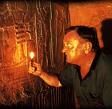
In 1968 after discovering as a child that there was a war in Heaven, Swiss hotel mgr. Erich Anton Paul von Daniken (1935-) pub. Chariots of the Gods? Unsolved Mysteries of the Past, selling 60M+ copies and popularizing the Ancient Astronaut Theory. Watch video; Watch video; Watch video.
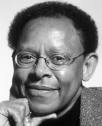
In 1969 Fordyce, Ark.-born theologian Rev. James Hal Cone (1938-2018) pub. the book Black Theology and Black Power, dissing white America for white supremacy, calling it antithetical to the gospel of Jesus Christ, and asking how white people could feel they have the right to affirm their freedom through the Death of God theology when they have enslaved black people in God's name, launching the black liberation theology movement in the U.S., later embraced by Pres. Barack Obama's pastor Rev. Jeremiah A. Wright.

In spring 1978 Calif.-born feminist theologian Crying Patriarchal Crisis, er, Carol Patrice Christ (1945-) presents the speech Why Women Need the Goddess, launching the Goddess Movement, which calls God "She"; "Theologians frequently assert that God has no body, no gender, no race and no age. Most people state that God is neither male nor female, yet most people become flustered, upset or even angry when it is suggested that the God they know as Lord and Father might also be God the Mother, or Goddess"; "The simplest and most basic meaning of the symbol of the Goddes is the acknowledgement of the legitimacy of female power s a beneficent and independent power"; "Women must be the spokesmen for a new humanity arising out of the reconciliation of spirit and body"; "Symbol systems cannot simply be rejected; they must be replaced where there is no replacement. The mind will revert to familiar structures at times of crisis, bafflement, or defeat."
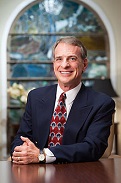
In 1979 Peoria, Ill.-born Christian theologian-philosopher William Lane Craig (1949-) of Biola U., owner of the Web site ReasonableFaith.org pub. the book The Kalam Cosmological Argument for the existence of God, that it is metaphysically impossible for there to be actual infinities or a temporally past-infinite universe, refining Thomas Aquinas' argument of the impossibility of a causally-ordered infinite regress, and Gottfried Wilhelm Leibniz's argument based on the Principle of Sufficient Reason, going on to defend the historicity of the resurrection of Jesus Christ, becoming one of the top-50 most influential living philosophers on Earth.